

















TLW's Philosopherscope™ (Philosopher Historyscope) |
By T.L. Winslow (TLW), the Historyscoper™ |
© Copyright by T.L. Winslow. All Rights Reserved. |
Original Pub. Date: July 2, 2013. Last Update: Nov. 4, 2023. |






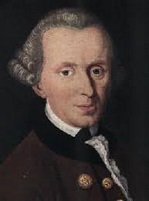

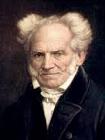




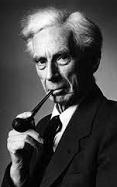



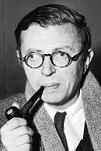
Westerners are not only known as history ignoramuses, but double dumbass history ignoramuses when it comes to philosophy and philosopher history. Since I'm the one-and-only Historyscoper (tm), let me quickly bring you up to speed before you dive into my Master Historyscope.
Philosophy was started by the Ancient Greeks. "Philosophy as we understand it is a Greek creation." (Martin Litchfield West) "The safest general characterization of the European philosophical tradition is that it consists of a series of footnotes to Plato." (Alfred North Whitehead) "Save for the wild force of Nature, nothing moves in this world that is not Greek in its origin." (Lord John Acton)
Yes, when it comes to philosophers the West is Best, because their thought undergirds modern civilization. The East has its philosophers too, incl. Zoroaster (Zarathustra) (-500s), Gautama Buddha (-563 to -483), Confucius (-551 to -479), Avicenna (980-1037) et al., but they are associated with loser cultures and will not be covered in this historyscope. By loser culture we mean no long upward climb leading to the Internet and the Historyscoper :) Too bad, modern-day physics and science have almost made philosophy obsolete, and it's getting harder and harder to get a job with a philosophy degree, which shouldn't stop anybody from scoping philosopher history with the Historyscoper in their spare time.
Greek philosophy is divided into Pre-Socratic Philosophy (Gr. "physiologoi" = natural philosophers) (Gr. "physikoi" = physicists") and Socratic Philosophy.




All them cerebral monotheistic religions and Greek philosophies give me a headache. If it weren't so uncerebral, I'd prefer to go Outback with the great Greco-Roman Gods, incl. Zeus (Jupiter), Hera (Juno), Aphrodite (Venus), Ares (Mars), Hermes (Mercury), Hephaestus (Vulcan), Poseidon (Neptune), Athene (Minerva), Artemis (Diana), and cool Apollo, god of the Sun, music, archery, and prophecy. If only the gods were us, supermen and superwomen living up high somewhere with all our bad lusts and weaknesses, not afraid of nudity and able to have sex 24/7/365 sans fear of diseases, any sufficiently advanced technology is indistinguishable from magic (Arthur C. Clarke), call it the Star Trek Dream. Speaking of prophecy, the biggest difference between religion and philosophy, an attempt to establish divine authority by claiming a divine message has been communicated to a prophet, that's the game every religion plays, believe my prophet when he/she prophesies by uttering prophecies or bad things will happen on top of the good things you will get if you go for it. The difference is in how they want you to believe, voluntarily with or without evidence, or by force, call it Action Pak, a double feature every day and night, 24 hours of the Matrix, hey you got a call, I bring word from the Oracle, you must come at once.

About 750 B.C.E. (1100 B.C.E.?) (850 B.C.E.?) blind Greek poet Homer (-750 to -700) is born in Chios, leaving The Iliad (24 vols.), about the 10-year Trojan War; "Sing, O goddess, the anger of Achilles, son of Peleus, that brought countless ills upon the Achaeans. Many a brave soul did it send hurrying down to Hades, and many a hero did it yield a prey to dogs and vultures, for so were the counsels of Jove fulfilled from the day on which the son of Atreus, king of men, and great Achilles, first fell out with one another." (opening); also leaves The Odyssey (24 vols.), about king Odysseus (Ulysses) of Ithaca (an island off the W coast of Greece S of Kythera), and his 10-year journey home in the face of the wrath of Poseidon for blinding his son, the cyclops Polyphemus, receiving the help of the goddess Athena, while his wife Penelope (Gr. "with a web over her face", "striped duck") fends off a host of arrogant suitors who eat her out of house and home by spinning a cloak during the day and having it taken apart at night, and their son Telemachus searches for his father then helps him outsmart and murder the suitors; the Odyssey was written or completed by Homer's son Homer II?; the Great Wanderings of Ulysses incl. the Kikonians, the Lotus Eaters, the Cyclopes, Aiolia, isle of Aiolos, mortal king who keeps the winds in a bag, the Laistrygones, land of a giant cannibal people, the Isle of Circe, the Land of the Dead, the Sirens, the crashing rocks Scylla and Charybdis, Thrinakia, where his men eat the cattle of Sun god Helios AKA Hyperion and are killed, and Ogygia, the isle of Calypso, daughter of Atlas; "Tell me, O muse, of that ingenious hero who travelled far and wide after he had sacked the famous town of Troy. Many cities did he visit, and many were the nations with whose manners and customs he was acquainted; moreover he suffered much by sea while trying to save his own life and bring his men safely home; but do what he might he could not save his men, for they perished through their own sheer folly in eating the cattle of the Sun god Helios; so the god prevented them from ever reaching home. Tell me, too, about all these things, O daughter of Jove, from whatsoever source you may know them." (opening)

About 600 B.C.E. Thales of Miletus (-624 to -547) becomes what Aristotle calls the first philosopher; "Western philosophy begins with Thales" (Bertrand Russell); he becomes the first to break with religion and attempt to explain Nature without resorting to mythology, becoming known as "the Father of Science"; he regards water as the arche (source of all things), and leaves Thales' Theory of Geometry and Thales' Intercept Theorem, becoming the first true mathematician who discovers a mathematical theorem and uses deductive reasoning to derive corollaries (four); helps the Egyptians measure the height of the pyramids; predicts an eclipse.
Christianity's muddled origins in Ancient Greece, or did they get a bootleg copy of the Bible translated badly?
In the 6th cent. B.C.E. the mystic Greek cult of Orphism is founded, generating a large body of sacred poetry ascribed to legendary Thracian poet-musician Orpheus, whose doctrines, esp. transmigration of souls (metempsychosis) influence Pythagoras, Plato, and Socrates; you see, the good god Dionysus, creator (Logos?) of the material world started out as a silver egg swallowed by Zeus, 6th son of titans Kronos (Chronos) (Cronus) and Rhea; Zeus, who was born in the Dictaen Cave on Crete is himself saved by his mommy after his daddy Big K, who has already shown his style by castrating his daddy Uranus (Heaven) to separate him from his mommy Gaea (Earth), swallows each of his children by her at birth (Hestia, Demeter, Hera, Hades and Poseidon), causing her to wise up and hide Zeusy baby in Crete (with the aid of Curetes), then give Kronos a rock instead of him for breakfast, allowing Zeus to grow up and force Kronos to disgorge his brothers and sisters; the egg Zeus swallows passes through his semen into Persephone, then is born as Dionysus Zagreus (son of God), but the ever-hungry Titans eat him, and Athena (goddess of wisdom) saves his heart, which Zeus eats, and this time he comes out of Semele as the final day-star-network Dionysus, and Zeus destroys the Titans with his thunderbolt and scatters their ashes through the material world, so that all humans have both good and evil elements; but if they rid themselves of the evil Titanic elements and preserve the good Dionysiac elements, they will eventually become totally purified after a series of reincarnations and go to heaven, while the rest go to hell - nine months later I felt lighter?

About 570 B.C.E. Greek philosopher (Thales' pupil) Anaximander of Miletus (-610 to -546) constructs the first known geographical and star charts, becoming the first writer on philosophy, and Mr. Undefined Unlimited Boundless Substance Is the Source of All Things (arche).
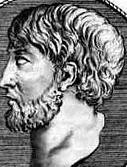
About 550 B.C.E. Greek philosopher (Anaximander's pupil) Anaximenes of Miletus (-585 to -528) becomes Mr. Air Is the Source of All Things (arche).
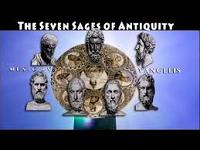
About 550 B.C.E. the Seven Sages (Wise Men) of Greece (Greek Antiquity), with their "pithy and memorable dicta" posted on the wall of the Temple of Delphi as dedications to the god Apollo are retroactively created in a literary hall of fame: Solon (Gr. "wise") of Athens (-638 to -558) ("Nothing in excess"), Chilon (Chilo) of Sparta (-600s) ("Know thyself"), Thales of Miletus (-624 to -547) ("To bring surety brings ruin"), Bias of Priene (-600s) ("Too many workers spoil the work") ("Most men are bad"), Cleobulus (Cleobulos) of Lindos (-600s) ("Moderation is the chief good"), Pittacus of Mitylene (-640 to -568) ("Know thine opportunity"), Periander of Corinth (d. -587) ("Forethought in all things"); alternates incl. Myson of Chen (Chenae) (Khenai) (-600s) and Anacharsis (-600s) (from Scythia).
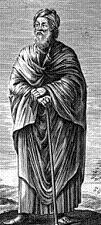
About 545 B.C.E. Xenophanes of Colophon (-570 to -470) leaves his home town of Colophon in Asia Minor and becomes a wandering poet-minstrel in Greece and Sicily, settling in Elea in S Italy in -536 for awhile and joining and/or co-founding (with Parmenides of Elea) the Eleatic School of Philosophy, which ridicules polytheism and pushes pantheism, dissing Homer for his anthropomorphic gods, with the famous soundbyte that if oxen could paint and sculpt they'd depict gods who look like oxen, espousing a belief in a supreme God that is non-mortal and eternal and doesn't intervene in human affairs; he reduces the world to the qualities of wet and dry (water and earth), dissing Anaximenes and his air theory by noting from his examination of fossils that water once covered the Earth, differentiating belief from knowledge.

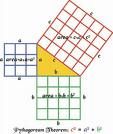

Shut your pi hole and do your math homework? About 530 B.C.E. after traveling to Egypt and learning the doctrines of the Egyptian priests, Greek Ionian philosopher (pupil of Anaximander, going for the air or ether is arche theory) Pythagoras of Samos (-580 to -497) is driven from Samos by tyrant Polycrates, and founds his mystical philosophical sect in Italy's Toe City Croton (Crotona), teaching reincarnation, numerology, and dietary restrictions (no beans), and gaining the support of superstar athlete Milo of Croton after claiming to be a reincarnation of Trojan War soldier Euphorbus; although he leaves no writings, his school discovers the Pythagorean Theorem and raises math to a science, considering Number to be the ultimate principle of the Universe, and believing the Earth to be a globe revolving with the planets (incl. the Sun) around a central fire, separated from each other by intervals corresponding to the harmonic lengths of strings, which play the Music (Harmony) of the spheres, with the incantation: "Ace choired plus bees choired e-quills seas choired"; ; Pythagoreans don't eat beans because they make bad music?; "The most momentous thing in human life is the art of winning the soul to good or to evil" - how I want a drink, alcoholic of course? Pythagoras leaves his writings to his daughter (by Theano) Damo, who passes them to her daughter Bitale.

In 504-501 B.C.E. Greek Socratic philosopher ("the Dark or Obscure") (dark clothing) ("the Weeping Philosopher") Heraclitus of Ephesus (-535 to -475) flourishes, becoming the philosopher of the Logos, and Mr. Fire Is the Source of All Things, adding the concept of becoming to that of being, and holding virtue to consist in subordinating the individual to the laws of society, as long they are based on a universal and reasonable harmony, leaving On Nature; he becomes known for the soundbytes: "No man ever steps in the same river twice", "The path up and down are one and the same", and "All entities come to be in accordance with the Logos (word)."
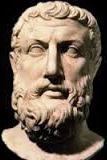
About 475 B.C.E. Greek philosopher Parmenides of Elea (-515 to -445) founds (with Xenophanes) the Eleatic School, which considers the real to be motionless, and distinguishes between belief and knowledge, influencing Plato; he claims that the Moon shines by reflected light; "To think and to be is the same thing."

In 469 B.C.E. Greek (Athenian) plug-ugly philosopher (gay?) Socrates (-469 to -399) is born in Athens to sculptor Sophroniscus and midwife Phaenarete; he goes on to sculpt a statue of the Three Graces which stands at the entrance to the Acropolis until the 2nd cent. C.E.?; father of the Maieutic (Gr. "midwife") Method of dialectic, based on "Socratic irony", an ironical profession of ignorance ("As for me, all I know is that I know nothing"); his main teaching is that all vice is ignorance, therefore no man is willingly bad, he just has to be enlightened with knowledge to act virtuously (he never heard of the Bible?); "How many things there are that I do not need" he exclaims, wearing one garment all year long and going barefoot in the snow; his student Plato writes down his ideas which otherwise would be lost since Socrates believes that writing distorts ideas, and writes nothing of his own - he could never have been a cop?
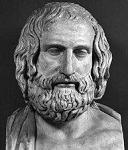
About 464 B.C.E. Ionian-born Greek philosopher Anaxagoras of Clazomenai (-510 to -428) settles in Athens, bringing philosophy to it and making it the center, becoming the teacher of Socrates, and the first to explain that the Moon shines due to reflected sunlight, that it has mountains, and might be inhabited; he rejects Empedocles' 4-element theory in favor of an infinite number of unique particles making up all objects, and introduces the cosmological concept of Nous (mind); proves that the Sun is matter not a divinity, going on to attempt scientific explanations of natural phenomena incl. eclipses, meteors, rainbows, the Sun (a mass of blazing metal larger than the Peloponnese), heavenly bodies (masses of stone torn from Earth and ignited by rapid rotation, too far away to feel their heat), and the Earth (flat, floating on "strong air", whose disturbances cause earthquakes); too bad, in -450 he is charged with impiety and forced into exile in Lampsacus in Troad in NW Anatolia despite his student Pericles speaking in his defense. "Appearances are a glimpse of the unseen"; "The seed of everything is in everything else"; "The descent to Hades is the same from every place."

About 450 B.C.E. Greek materialist (atomist) philosopher Leucippus (d. -420?) flourishes, becoming the teacher of Democritus of Abdera, uttering the immortal soundbytes: "Everything is driven by necessity", and "Nothing is created by coincidence (at random), rather there is reason and necessity for everything."

About 450 B.C.E. Greek philosopher (Parmenides of Elea's pupil) Zeno the Dialectician of Elea (-495 to -435) from Elea (Velia), Italy formulates his mathematical Zeno's Paradoxes, becoming the first to use the reductio ad absurdum argument.

In 446 B.C.E. Sicilian-born Greek eclectic vegetarian philosopher (last to write in verse) Empedocles of Acragas (Agrigentum) (-490 to -430) visits Pericles' new Athenian colony of Thurii (Thourioi) in Magna Grecia, going on to establish the four elements (roots) incl. Fire (Zeus), Air (Hera), Water (Nestis), and Earth (Aidoneus), which are brought into union and parted by the divine powers of Love and Strife; they started in an original pure state in a sphere; he claims that light streams out of our eyes and touches objects, and believes in the transmigration of the soul. In 431 B.C.E. Empedocles propounds the theory that the Universe consists of four elements: earth, fire, air, and water, which are ruled by the forces of attraction (love) and repulsion (strife), and that human body has four humors (humours): blood, bile, black bile and phlegm - no good humor? In 430 B.C. Empedocles commits suicide by throwing himself into the active volcano at Mount Etna in Sicily to make his disciples believe that he is immortal.

About 440 B.C.E. Abdera, Thrace-born Greek philosopher (Democritus' pupil) Protagoras of Abdera (-490 to -420) becomes the first Sophist (Gr. "sophistes" = one who does wisdom), with the immortal soundbyte: "Man is the measure of all things: of things which are, that they are, and of things which are not, that they are not"; their practice of charging young nobles for education in wisdom pisses-off Socrates, who calls them specious or deceptive.

About 420 B.C.E. after using his large inheritance to travel the known world incl. Egypt, Asia, India, and Ethiopia, Abdera, Thrace-born Greek philosopher (Leucippus' pupil) ("Father of Modern Science") ("the Laughing Philosopher") ("the Mocker") Democritus (Gr. "chosen of the people") of Abdera (-460 to -370) (b. -470?) pioneers the concept of atomic structure by contrasting the Intellect and the Senses: "Apparently there is color, apparently sweetness, apparently bitterness, actually there are only atoms and the void"; "Poor Intellect, do you hope to defeat us, while from us you borrow your evidence? Your victory is in fact your defeat."
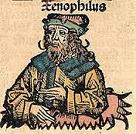
About 400 B.C.E. Chalcidice-born Greek philosopher Xenophilus (-300s) flourishes, becoming the last of the Pythagoreans, and the only one to live in Athens in the 4th cent. B.C.E.; after Pliny claims that he lives to age 105 without ever getting sick, he becomes a celeb in the Renaissance.


One good way to avoid paying old age pensions, or, the first Greek Christ without any Jehovah or Bible? On Feb. 15, 399 B.C.E. Greek philosopher Socrates (b. -469), who doesn't even allow youths under 30 to be exposed to dialectic is sentenced on the charge of corrupting the morals of Athenian youth and denying or neglecting the gods of the state, esp. by introducing the daemonion, or mysterious inner voice, which they take to be a new god; after refusing to address the charges and instead giving a speech vindicating his whole weltanschauung, which sails over the jury's head, he is condemned to death by a small majority, then angers them by offering to pay a small fine instead, causing the majority against him to increase; after his friends plan an escape and he refuses to break the laws of the state, he spends a last day with friends, issues the soundbyte: "Death may be the greatest of all blessings", then nobly drinks a cup of poison hemlock (he chooses to die rather than renounce the freedom to speak his mind in the search for wisdom?) (the real reason he is tried is that he is associated with Athenian traitor Alcibiades?); his death frees his student Plato (Gr. "broad") (real name Aristocles) (-427 to -347) (b. -428?) (d. -348?) (AKA Eflatun, meaning spring of water or knowledge) (born in Athens of wealthy aristocrats Ariston and Perictione; a relative of politician Critias) (who attends his trial but not his execution, and is messed up by it for life?) to travel broadly, er, widely, while churning out writings idolizing his crucified savior, making him immortal; he goes on to become "the Father of Western Philosophy", founding the Academy in Athens.

About 398 B.C.E. after witnessing Socrates' death and fleeing to his hometown and offering refuge to his other pupils, Greek Socratic philosopher Eucleides (Euclides) (Euclid) of Megara (-435 to -365) founds the Megarian School of Philosophy in Megara in N Isthmus of Corinth opposite Salamis Island, which flourishes for a cent. and produces Ichthyas, Eubulides of Miletus (known for his paradoxes, incl. The Liar Paradox), Clinomachus (first philosopher to compose treatises on the fundamental principles of Dialectics), and Thrasymachus of Corinth, and his pupil Stilpo (Stilpon) (-360 to -280), teacher of Zeno of Citium and Menedemus of Eretria; it teaches that the good is the knowledge of the one universal Being AKA God, Mind, Wisdom, Reason, and alone exists; "The Good is One, but we can call it by several names, sometimes as wisdom, sometimes as God, sometimes as Reason"; "The opposite of Good does not exist"; too bad, the doctrine is so patently absurd that the Megarians reverse Socrates' heuristic method into the eristic method of concentrating on finding something wrong in opponents' arguments, using Zeno of Elea's reductio ad absurdum technique to the max.
About 398 B.C.E. Socrates' pupil Phaedo of Elis (namesake of Plato's dialogue Phaedo) returns to Elis and founds the Elean School of Philosophy; after his death Phaedo's and Stilpo of Megara's pupil Menedemus of Eretria (-345 to -260) transfers the school to Eretria in Euboea.
About 380 B.C.E. Plato writes The Republic (Res Publica), a Socratic dialogue that postulates the ideal state of Kallipolis, with philosopher kings "who love the sight of truth" (475c), at the top of a class society of alpha (rulers) (reason), beta (warriors) (spirit), delta (workers) (appetite) people; contains references to specialization of labor and production; "Until philosophers rule as kings or those who are now called kings and leading men genuinely and adequately philosophize, that is, until political power and philosophy entirely concide, while the many natures who at present pursue either one exclusively are forcibly prevented from doing so, cities will have no rest from evils... nor, I think, will the human race" (473c-d); becomes the first known advocate of the Credit Theory of Money, which claims that money originated as a unit of account for debt, and that money creation involves the simultaneous creation of money and debt, meaning that they're really the same thing.

In 356 B.C.E. Greek philosopher Aristippus of Cyrene (b. -435) dies after founding the Cyrenaic school of philosophy in Cyrene, Libya, which considers individual sensual pleasure the greatest good; his daughter Arete of Cyrene takes over - hard or gentle strokes?
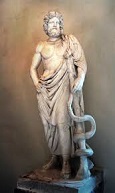
About 350 B.C.E. Pergamum (Pergamon) (Pergamos) in Asia Minor, whose acropolis atop a 1300-ft. cliff above the Calcus River gives it an excellent view of the Bay of Lesbos becomes known for its worship of Asclepius (Asclepios) (Asklepios), the god of medicine and healing (son of Apollo), known for his snake-entwined (no wings like Hermes' Caduceus) Rod of Asclepius that becomes a symbol of medicine; his daughters are Hygieia (cleanliness), Isaso (recuperation), Aceso (healing process), Aglaea (Aegle) (beauty), and Panacea (universal remedy); Epidaurus (Epidoros), his alleged birthplace becomes the #1 healing center of the ancient Greek-Roman world, lasting until the mid-5th cent. C.E. as a Christian healing center - the first free clinic for the treatment of sexually-transmitted disease?
In 347 B.C.E. Greek "number appears to lead towards truth" philosopher Plato (b. -427) dies in Athens at age 76-80 after becoming the first to propose that the brain is the seat of mental processes, and to propose the Great Chain of Being; "One of the penalties for refusing to participate in politics is that you end up being governed by your inferiors"; "Wonder is the feeling of the philosopher, and philosophy begins in wonder"; "Whatever deceives seems to exercise a kind of magical enchantment"; leaves The Dialogues, incl. nine tetralogies (arrangement ascribed to Tiberius' court astrologer Thrasyllus by Diogenes Laertius): 1: Euthyphro (attempt to define the meaning of piety to defend against the charge of impiety), Apology (defense of his master Socrates) ("I shall never alter my ways, not even if I have to die many times"), Crito, Phaedo (which describes Socrates' last words and hemlock death, and claims that swans sing because they are inspired by Apollo, and is also claimed to have the beginning of the Gospel of John and the Trinity in it by St. Augustine); 2: Cratylus, Theaetetus, Sophist, Statesman; 3: Parmenides, Philebus, Symposium, Phaedrus; 4: Alcibiades 1 & 2, Hipparchus, Lovers; 5: Theages, Charmides (Temperance), Laches, Lysis; 6: Euthydemus, Protagoras, Gorgias, Meno; 7: Hippias Major, Hippias Minor, Ion ("Poetry is nearer to vital truth than history"), Menexenus; 8: Clitophon, The Republic (Res Publica), Timaeus ("God created the soul before the body and gave it precedence both in time and value, making it the dominating and controlling partner"), Critias; the Story of Atlantis is found in "Timaeus" and "Critias", allegedly passed down by his ancestor Solon; 9: Minos, Laws; Epinomis, Letters; spurious works incl. Axiochus, Definitions, Demodocus, Epigrams, Eryxias, Halcyon, On Justice, On Virtue, Sisyphus.
In 347 B.C.E. Plato (b. -427) dies, and his nephew Speusippus (-407 to -339) succeeds him as head of the Academy in Athens, going on to reduce the Good from the #1 to #2 principle, and argue that one cannot know something until one knows all the differences which separates it from everything else, inventing the ideas of genera and species, and dividing philosophy into Dialectics, Ethics, and Physics.
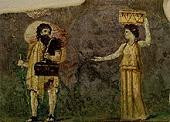
About 340 B.C.E. after being born rich and giving it away, lame hunchbacked Cynic philosopher Crates of Thebes (-365 to -285) moves to Athens, becoming the pupil of Diogenes of Sinope followed by the teacher of Zeno of Citium, marrying babe Hipparchia of Maroneia, sister of his student Metrocles, who gives up her wealth for him; he becomes known as the Door-Opener from his habit of entering any house he pleased, being welcomed with honor and gladness.

In 339 B.C.E. Chalcedon-born Xenocrates (-396 to -314) becomes head (scholarch) of the Platonic Academy in Athens (until -314), backing Plato's teaching but claiming a third form of being other than the sensible and intelligible, corresponding to opinion; he splits with Plato by considering Platonic ideas to be identical with mathematical objects, and considers unity and duality to be gods that rule the Universe, and the soul to be a self-moving number; he believes in daemonical powers intermediate between the divine and moral, which consist of conditions of the soul; he teaches that virtue produces happiness, but that worldly goods can help.

In 335 B.C.E. after breaking ranks with his master Plato of the Academy in Athens, Stagira, Macedonia-born Greek Golden Mean philosopher ("the Peripatetic Philosopher") (the first scientist?) (gay?) Aristotle (Gr. "best (purpose) of all") of Stagira (-384 to -322) begins his career by founding a gymnasium in E Athens called the Lyceum (Lykeion), named after a nearby temple to Apollo Lycean (Gr. "lukos" = wolf), founding the Peripatetic School, named either after the collonades of the Lyceum, or for his habit of walking and talking; he prefers to go around collecting data before solving problems, vs. Platonists, who sit around thinking up answers by pure thought; Aristotle writes the 10-vol. Nicomachean Ethics, which becomes a hit during the European Middle Ages, and uses lunar eclipses to prove that the Earth is ball-shaped. He goes on to become the teacher of undefeated world conqueror Alexander III the Great, preferring to collect data rather than sit around thinking, and (after much personal experimentation?) deciding that all inheritance comes from the father, the mother merely providing the material, and that female babies are caused by "interference" from the mother; he leaves 260 treatises, incl. Constitution of Athens (written in -350) (discovered in 1890 C.E.), Physics, Metaphysics, Ethics, Logic (Prior Analytics), Zoology, De Anima (On the Soul) (the nous poietikos or active intellect vs. the nous pathetikos or passive intellect), which first mentions the Tabula Rasa view of the mind as starting out a blank slate, and Poetics, the first work on art criticism, valuing art based on how it imitates the universal in human nature, and claiming criticism as a science: "Man is by nature a political animal"; "Hope is a waking dream"; "Tyrants preserve themselves by sowing fear and mistrust among the citizens by means of spies, by distracting them with foreign wars, by eliminating men of spirit who might lead a revolution, by humbling the people, and making them incapable of decisive action"; "Music directly represents the passions of the soul. If one listens to the wrong kind of music, he will become the wrong kind of person"; "I have gained this from philosophy: That I do without being commanded what others do only from fear of the law."

In 323 B.C.E. Sinope, Pontus-born Greek Cynic philosopher Diogenes of Sinope (the Cynic) (-412/404 to -323) dies, founding the Cynic School of Philosophy; his father Icesias is a banker who is convicted of debasing coinage, causing Diogenes to have to leave Sinope for Athens, where he gets Cynic philosopher Antisthenes to take him in and begins living like a dog in a tub (large ceramic jar) in the marketplace, masturbating in public, hence the name cynic (canine) (like a dog), carrying a lamp in daytime to look for an honest man; he sabotages the lectures of Plato, criticizing and embarrassing him and Alexander the Great; he is captured by pirates on a voyage to Aegina, sold as a slave in Crete to Xeniades of Corinth, and set free and made tutor of his children; teacher of Zeno of Citium - he's not on the pedophile list? He dies on June 10 (same day as Alexander the Great) after having an interview with him, and when asked by Alexander how he can best serve him, telling him, "Stand out of my sunshine", causing Alexander to remark, "If I were not Alexander, I should wish to be Diogenes"?: "Humans have complicated every simple gift of the gods"; "I fawn on those who give me anything, I yelp at those who refuse, and I set my teeth in rascals" (when asked why he lives like a dog); "If only it were as easy to banish hunger by rubbing my belly" (when asked why he masturbates in public); "I am a citizen of the world (cosmopolites)" (first use of the word cosmopolitan); "It is not that I am mad, it is only that my head is different than yours."

In 306 B.C.E. Samos-born Greek philosopher Epicurus (Gr. "ally/comrade") (-341 to -270) founds the Garden School in Athens, which teaches Epicureanism, the teaching that the purpose of philosophy is to attain a happy, tranquil life, characterized by peace and freedom from fear (ataraxia) and the absence of pain (aponia), preferably self-sufficient and surrounded by friends; pleasure and pain are the measures of what is good and evil; death is the end of both body and soul and should therefore not be feared; the gods neither reward nor punish humans; the universe is infinite and eternal; events in the world are ultimately based on the motions and interactions of atoms moving in empty space; too bad, he contracts kidney stones and dies in agony, claiming that "The cheerfulness of my mind, which comes from the recollection of all my philosophical contemplation, counterbalances all these afflictions."

About 300 B.C.E. Citium, Cyprus-born Greek philosopher (of Phoenician descent?) (Crates of Thebes' pupil) Zeno of Citium (-334 to -262) founds the Stoic School of Philosophy in Athens, named from the Stoa Poikile or Painted Porch in Athens, which teaches that it is man's duty to accept his fate, that virtue is the highest good, and that the passions (destructive emotions) are to be condemned and moral and intellectual perfection to be sought by purging them in favor of goodness and peace of mind, stressing the life of virtue in accordance with Nature; when he dies, Cleanthes of Assos (d. -232) (from the town of Assos in coastal Asia Minor, where Aristotle later opens an Academy) becomes head of the Stoic School in Athens, going on to give materialism a religious flavor by comparing the Universe to a human being and the fixed stars to its soul, which makes it okay to worship them, and composes a Hymn to Zeus, praising cosmic order, law, and universal reason - sounds a lot like the Hebrew Jehovah?
In 279 B.C.E. Greek skeptic philosopher Timon of Phlius (-320 to -230), a disciple of Greek skeptic Pyrrho gives 'em hell with the line that people only need to know three things, their nature, how we are related to them, and what we can gain from them, but since our knowledge must always be subjective and unreal, we can only live in a state of suspended judgment - I prefer a real Savior?
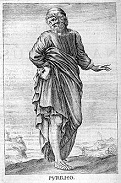
In 270 B.C.E. Greek skeptic philosopher (first) Pyrrho of Elis (-360 to -270) dies, becoming the inspiration for the 1st cent. B.C.E. Greek Skeptic (Pyrrhonist) School of Anesidemus of Cnossos, which teaches that man is unable to know the real nature of the world or how it came into being (acatalepsia), and that instead of searching for the unknowable men should be practical, follow custom, and accept the evidence of their senses, freeing themselves from worry (ataraxia) - if only man could settle for that?
About 250 B.C.E. Greek academic skeptic philosopher Arcesilaus (-316 to -240) founds the Second (Middle) Academy in Athens.
In 155 B.C.E. Greek philosophers Diogenes the Stoic (-230 to -150), his student Carneades the Academic (Skeptic) (-213 to -129), and Critolaus the Peripatetic of Phaselis (-200 to -118) come to Rome as envoys from Athens, becoming popular esp. with the youth, raising doubts about the certainty of justice, pissing-off Cato the Elder, who persuades the Roman Senate to ban all Greek philosophers with the soundbyte that if they get infected with Greek lit. they will lose their empire - should have said Jewish lit.?
In 146 B.C.E. the Achaean League attacks Sparta, but the Romans under consul Lucius Mummius Achaicus crush them, destroy Corinth, slaughter the men, and sell the women and children into slavery, then dissolve the Achaean League, substituting oligarchies for democracies, and annex Greece, placing it under the supervision of the Roman gov. of Macedon, who is permanently installed in Thessalonica; once-proud Greece becomes another tribute-paying Roman province, full of people every Equestrian would like to own?; Macedonia's four districts are formed into a koinon by Rome, with capital at Beroea at the foot of Mt. Bermios (seat of the imperial cult); from now on Greeks work as slaves and peddle their cerebral culture to their practical-minded Roman masters, while living in the past in a state of denial? - don't worry, Romans, you will know what it feels like one day?

In 55 B.C.E. Roman poet-philosopher Titus (Lat. "defender") Lucretius Carus (Lat. "beloved") (-99 to -55) dies, leaving the epic philosophical poem De Rerum Natura (On the Nature of Things), expounding his Epicurean doctrine of the Universe in poetic form to Roman readers, based on atomism and guided by fortuna (chance); the first description of persistence of vision, which later makes motion pictures possible; in 1417 C.E. the long-lost full text is rediscovered in St. Gall Monastery by Italian humanist Giovanni Francesco Poggio Bracciolini (1380-1459).

On Dec. 7, 43 B.C.E. after championing the kaput traditional republic govt. against the Second Triumvirate of Mark Antony, Octavian, and Marcus Aemilius Lepidus (formed Nov. 26), Arpinum-born Roman statesman-orator-philosopher Marcus Tullius Cicero (-106 to -43) is executed in Formia; the early Roman Catholic Church declares him a righteous pagan, causing many of his works to be preserved; Petrarch rediscovers his letters, helping launch the 14th cent. Renaissance; leaves De Oratore (On the Orator), De Re Publica (On the Republic), De Legibus (On the Laws), Brutus, Orator, Hortensius (On Philosophy) (lost) (teaches that genuine human happiness is to be found by embracing and using philosoophy), De Divinatione (On Divination), De Natura Deorum (On the Nature of the Gods), De Oficiis (On Duties or Obligations), Letters to Atticus, Letters to My Brother Quintus, Letters to Brutus, Letters to Friends: "History is the teacher of life" (Historia magistra vitae est); "What is more unwise than to mistake uncertainty for certainty, falsehood for truth?"; "Memory is the treasury and guardian of all things"; "A nation can survive its fools, and even the ambitious, but it cannot survive treason from within. An enemy at the gates is less formidable, for he is known and carries his banner openly. But the traitor moves amongst those within the gate freely, his sly whispers rustling through all the alleys, heard in the very halls of government itself. For the traitor appears not a traitor; he speaks in accents familiar to his victims, and he wears their face and their arguments, he appeals to the baseness that lies deep in the hearts of all men. He rots the soul of a nation, he works secretly and unknown in the night to undermine the pillars of the city, he infects the body politic so that it can no longer resist. A murderer is less to fear. The traitor is the plague."
So divideth the B.C.E., the Don't-Say-B.C.-Before-Christ Butt Crack of Eternity (Before Common Era) from the C.E., the Don't-Say-A.D.-Anno-Domini-Year-of-the-Lord-Christ Scratch-and-Dent-Sale Common Era?

About 50 C.E. Tarsus-born Jewish Christian apostle (St.) Paul (Gr. "little") (Saul) (Heb. "asked of God") (5-65) takes on the Greek Epicurean and Stoic philosophers and their Unknown God (in case they missed one with their other temples, to cover all bases) in the Areopagus, converting Dionysius the Areopagite et al. (Acts 17:15-34); Greek writings bearing the name of Dionysius the Areopagite are later produced by anon., laying the foundation for the mystical theology of the Church.

In 65 C.E. after sucking up to Emperor Nero and attaining great wealth, compromising his Stoic principles, then getting sucked into a treason trap, Roman statesman-philosopher-dramatist Seneca the Younger (Minor) (-4 to 65) commits suicide in a bath on Nero's orders; his wife attempts ditto, but is saved on Nero's orders; he leaves the plays Agamemnon, Medea, Phaedra (Hippolytus) et al. (9 survive): "Even while they teach, men learn"; "Time is the one loan we can never repay. Hold every hour in your grasp. Lay hold of today's task, and you will not need to repent so much on tomorrow's." The early Christian Church believes he was converted to Christianity by St. Paul, and that the bath was really a baptism, causing Tertullian to call him "our Seneca", and Dante to place him in the First Circle of Hell (Limbo), making him a star with Chaucer, Petrarch, Erasmus, Calvin, Montaigne, Emerson et al.

On Aug. 25, 79 C.E. Comum (Como)-born Roman historian-natural philosopher Pliny the Elder (Major) (Gaius Plinius Secundus) (23-79) is killed in Stabiae, Campania while trying to rescue a friend and his family from the eruption of Mt. Vesuvius; leaves Natural History (Historia Naturalis) (Historia Naturalis) (37 vols.), which contains all the known science of the day, incl. the art of soapmaking, learned from the Gallic Celts, who make a mixture of tallow and wood ashes which they call saipo, and use it to wash their long wild hair; mentions Escargo as an elite food; in 1469 it becomes the first scientific book to be printed in the West with the Gutenberg printing press: "In vino veritas" (In wine there is truth); "True glory consists in doing what deserves to be written and in writing what deserves to be read"; "Among these things but one thing seems certain: that nothing certain exists, and that nothing is more pitiable or more presumptuous than man."

In 93 C.E. after obtaining his freedom in 68 from Nero's secy. and settling in Rome to teach philosophy, only to see Emperor Domitian banish all philosophers from the city, Hierapolis, Phyrgia-born lame Stoic philosopher Epictetus (Lat. "acquired") (55-135) flees Rome, setting up a school in Nicopolis, Epirus, Greece, dying there in 135, leaving his famous Discourses of Epictetus (8 vols.), collected by his pupil Arrian of Nicomedia (86-160), which teach that philosophy is a way of life, and that fate determines events, hence we should accept life calmly, exercising rigorous self-discipline, making fans of Marcus Aurelius, U.S. fighter pilot James Stockdale et al. He also leaves The Enchiridion (Gr. "dagger") (small handbook); "Practice yourself, for heaven's sake, in little things, and thence proceed to greater"; "All religions must be tolerated... for... every man must get to heaven in his own way." After he dies his lamp is purchased by an admirer for 3K drachmae. "Happiness and freedom begin with a clear understanding of one principle: Some things are within your control, and some things aren't"; "It's not what happens to you, but how you react to it that matters"; "We are disturbed not by what happens to us, but by our thoughts about what happens"; "Make the best use of what is in your power, and take the rest as it happens"; "Know first who you are, then adorn yourself accordingly"; "It is impossible for a man to learn what he thinks he already knows"; "First say to yourself what you would be, then do what you have to do"; "The less the fun the more pleasant it is"; "There is only one way to happiness and that is to cease worrying about things which are beyond the power of our will"; "We have two ears and one mouth so that we can listen tiwce as much as we speak"; "The key is to keep company only with people who uplift you, whose presence calls forth your best"; "Remember that no one offends you; it's your subjective opinion, nothing else"; "He is a wise man who does not grieve for the things which he has not, but rejoices for those which he had"; "To accuse others for one's own misfortune is a sign of want of education. To accuse oneself shows that one's education has begun. To accuse neither oneself nor others shows that one's education is complete"; "Is freedom anything else than the right to live as we wish? Nothing else"; "Everything, saith Epictetus, hath two handles - the one to be held by, the other not" (Robert Burton).

On Mar. 17, 180 C.E. Roman emperor (since 161) Marcus Aurelius (121-80) dies in Vindobona (Sirmium?), leaving his Stoic philosophical tome Meditations (12 vols.) (161-80): "When you wake up in the morning, tell yourself: The people I deal with today will be meddling, ungrateful, arrogant, dishonest, jealous, and surly. They are like this because they can't tell good from evil. But I have seen the beauty of good, and the ugliness of evil, and have recognized that the wrongdoer has a nature related to my own - not of the same blood or birth, but the same mind, and possessing a share of the divine"; "Everything we hear is an opinion, not a fact. Everything we see is a perspective, not the truth."

In 270 C.E. Lycopolis, Egypt-born Roman philosopher (Ammonius Saccas' pupil) Plotinus (204-270) dies in Campania after founding and coining the term Neo-Plotinism, er, Neo-Platonism (ends 529), which reduces the Universe to the One, the Intellect, and the Soul, leaving The Six Enneads.
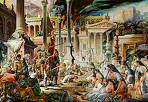


On Aug. 24-27, 410 C.E after deposed emperor Honorius regains power, and Visigoth king Alaric I and his 40K-man army march down Italy yet one more time, depose and imprison puppet Attalus, then after a short siege marked by on-again-off-again negotiations enter through the Salarian Gate, they sack Rome (say again?), leaving churches alone since they're still Christians, if heretic Arians, then after the emperor refuses to negotiate they head S towards Italy's granary in N Africa, and Alaric I dies on the way to Sicily after losing his fleet and being turned back, and is buried in the bed of the Busento River; his brother-in-law Ataulf (Athaulf) (Ataulphus) (-415) succeeds him, vowing to destroy the very name of Rome (home of the heretic Nicean Council crowd of bishops?), causing head bishop Pope Innocent I to leave the city until 412; the woes of the prostrate city cause (St.) Augustine (Austin) (Aurelius Augustinus) (354-430) in North Africa to produce his 22-vol. escapist work (about a holy Augustus ruling an invincible holy city of Rome?) The City of God, as the real City of God is no longer able to protect what's left of the Roman Catholic Western Roman Empire from the heavy G.I. Joe and hairy Barbie-doll barbed Arians (barbarians)?; he at first claims "Behold, from Adam all the years have passed, and behold the 6,000 years are completed", but as the world shows no sign of ending he teaches that the Church should ditch the Book of Revelation because the Kingdom of God has actually arrived with its new political power, and imagines the Church as a worldwide empire acting as the instrument of the Holy Spirit to gradually transform the world, but preaches that the heavenly New Jerusalem should be the goal rather than the earthly one; he pushes the doctrine of "Totus Ubique" (the whole of God everywhere), invents the notion of the inner self, explores the inner relationship between the soul and God along with the idea of divine grace, and all with the cool language of a Roman-trained rhetorician, dissing the holier-than-thou Donatists by claiming that saints and sinners should all be part of the Catholic Church, and will be separated at the End of Time, with the mystical secret brotherhood of saints forming the City of God, and the sinners forming the Twin City of Hell; "That which man builds man destroys, but the city of God is built by God and cannot be destroyed by man", its role being "to inspire men and women to organize their communities in the image and likeness of the heavenly city"; the operational message is that Christians should get out and convert violent barbarians, with education relegated to survey courses on classical lit. (science and technology - fuggedaboutit), giving the Roman Catholic Church its Mission: Impossible for the next six cents.; too bad, his work is later used to justify persecution of heretics and Jews because membership in the Church is mandatory; in short, Da Dark Ages; Pope Innocent I laps it up and becomes a groupie? - duh, Jesus said be no part of this world (John 17:14-16)? On Aug. 28, 430 C.E. after watching the Roman Empire unravel under the weight of barbarians, St. Augustine of Hippo is killed in the Vandal siege of Hippo (starvation?), leaving 200+ books, 300+ letters, and 400+ sermons, incl. The Confessions of St. Augustine (13 vols.) (397-400), the first autobio., showing what about the Catholic movement?; the first nine books narrate his first 31 years, ending with his baptism; the last four deal with his interpretation of Genesis and his ruminations on time and memory, attempting to reconcile Christian theology with Greek philosophy; he formulates a psychology that almost recognizes the subconscious, along with an "inner sense"; "Oh God, make me chaste - but not yet." He also leaves The Enchiridion (if it had been The Enchilada, Rome might have had its first Taco Bell?): "The good Christian should beware of mathematicians. The danger already exists that mathematicians have made a covenant with the Devil to darken the spirit and confine man in the bonds of Hell"; "Hope has two children. The first is anger at the way things are. The second is courage to do something about it"; "The truth is like a lion. You don't have to defend it. Let it loose and it will defend itself."

In Mar. 415 after Alexandrian bishop (since 412) St. Cyril expels the Jews from Alexandria, Hypatia (b. 370), the Neoplatonist librarian of Alexandria, who supports Orestes, pagan prefect of Alexandria for opposing persecution of pagans and Jews is jumped in her chariot, stripped naked, and dragged through the streets to the newly-depaganized Caesareum Church, and murdered by a mob of Coptic Christian monks (from Nitria?) led by Peter (working for Archbishop Cyril under the influence of Pulcheria), ending the Hellenistic Age; her skin is scraped off with sharpened oyster shells and she is set on fire while still alive?; the first burning by Christians of a witch?; she wasn't the librarian of Alexandria because Roman emperor Aurelian destroyed it in 272?; meanwhile St. Augustine writes "The true image of the Hebrew is Judas Iscariot, who sells the Lord for silver. The Jew can never understand the Scriptures and forever will bear the guilt for the death of Jesus."



In Aug. 476 Flavius Odoacer (Odovacer) (435-93), Herulian Visigoth chief gen. of the Germanic tribes in the Roman army leads a revolt over a baksheesh matter (free homes in Italy), captures Ravenna, and kills Orestes in Pavia; on Sept. 4 (Sept. 7 Gregorian) (Mon.) Romulus Augustus (461-77?) (AKA Augustulus), the boy emperor of Rome in Ravenna becomes the Last Roman Emperor of the West as he is deposed and exiled to the castle of Lucullus in Campania in S Italy (with 6K pieces of gold per annum allowance) by Odoacer, who proclaims himself Roman emperor of the West, petitioning Emperor Zeno to recognize him as a patrician and ruler of Italy on behalf of the Eastern Empire; Zeno accepts on the last part, but insists that exiled Julian Nepos (d. 480) remain Roman emperor, which he does, on coins; 753 + 476 - 1 = 1228?; the Dark Ages begin as 1.2K years of progress of civilization becomes kaput in Europe thanks to barbarians and Christian hostility to paganism, which to them incl. all pagan scientific, literary, historical, and cultural works, making all scientists forever suspect of being in league with the Devil by the Christian masses, an impediment that ends in ?, and the very idea of wanting to live for "the world" when the Kingdom of Heaven is dangled in front of your eyes to seem pointless?; "So it was in utter social decay and collapse that the great slave-holding 'world-ascendency' of the god-Caesars and the rich men of Rome came to an end" (H.G. Wells, Ch. 37) - so who is the last emperor, Romulus Augustus or Nepos?
On Apr. 17, 485 C.E. Greek Neoplatonist philosopher Proclus (412-85) dies in Athens, leaving The Elements of Theology, consisting of 211 propositions and proofs, starting with the existence of the One (Divine Unity) and ending with the descent of individual souls into the material world; also The Platonic Theology (On the Theology of Plato), using Plato's dialogues to illustrate the divine orders, the part of the Universe closest to the One, becoming one of the most elaborate and fully developed systems of Neoplatonism.

In 524 C.E. Rome-born Platonic philosopher-senator (last Roman philosopher?) Anicius Manlius Severinus Boethius (Boëthius) (480-524) is executed in Pavia by King Theodoric the Great, leaving The Consolation of Philosophy(De Consolatione Philosophiae), teaching readers to look beyond worldly inequalities to divine Providence, becoming the #1 philosophical work of the Christian Middle Ages ("a work written by a Platonist who is also a Christian, but is not a Christian work" - Henry Chadwick); "Ah why, my friends,/ Why did you boast so often of my happiness?/ How faltering even then the step / Of one now fallen" (opening); after Philosophy appears in the form of a woman: "Her look filled me with awe; her burning eyes penetrated more deeply than those of ordinary men; her complexion was fresh with an ever-lively bloom, yet she seemed so ancient that none would think her of our time"; "There remains also as an observer from on high foreknowing all things, God, and the always present eternity of his sight runs along with the future quality of our actions, dispensing rewards for the good and punishments for the wicked."

Pagan school = porno shop, so let's close them all? In 529 C.E. Latin-speaking Christian Byzantine Emperor (527-65) Justinian I the Great (482-565) issues an edict shutting down any remaining pagan and Samaritan teachers, with the soundbyte: "We wish to widen the law once made by us and by our father of blessed memory against all remaining heresies (we call heresies those faiths which hold and believe things otherwise than the catholic and apostolic orthodox church), so that it ought to apply not only to them but also to Samaritans [Jews] and pagans. Thus, since they have had such an ill effect, they should have no influence nor enjoy any dignity, nor acting as teachers of any subjects, should they drag the minds of the simple to their errors and, in this way, turn the more ignorant of them against the pure and true orthodox faith; so we permit only those who are of the orthodox faith to teach and accept a public stipend", sending it to the Neo-Platonic Academy of Athens (founded -387), which closes, with its Damascus-born leader (scholarch) Damascius (458-540) ("last of the Neoplatonists") moving the school (six colleagues) and its precious scrolls in 532 to Ctesiphon under the protection of Khosrau I, who gets their security guaranteed in a 533 treaty with the Byzantines, allowing them to move to Alexandria; Damascius' pupil Simplicius of Cilicia (490-560) goes on to become the last great pagan philosopher, leaving commentaries on Aristotle.
In 855 the Magnaura School of Philosophy in Constantinople is founded in the old Senate bldg. E of the Augustaion near the Hagia Sophia and next to the Chalke Gate of the Great Palace, becoming the home of Leo the Mathematician/Philosopher (790-870), who started out as iconoclast archbishop of Thessalonica and begins teaching Aristotelian logic, helping launch the Macedonian Renaissance and becoming the "cleverest man in Byzantium in the 9th century".

In 873 Baghdad-born Arab super brain Al-Kindi (Abu Yusuf Yaqub ibn Ishaq as-Sabbath al-Kindi) (801-873), member of the House of Wisdom and first of the Islamic peripatetic philosophers (who apply reason to the Koran) dies after overseeing the translation of "the philosophy of the ancients" (Greek scientific-philosophical texts) into Arabic and leaving hundreds of works on all the sciences, incl. introducing Indian numerals to the Islamic world, which become Arabic numbers when introduced to the Christian world; his metaphysics stresses the absolute oneness of God, calling God the "First Intellect", following Plato in claiming that every object in the material world corresponds to a universal form in the heavenly realm, becoming "the father of Arab philosophy", going on to become popular in Christian Europe.
In 915 Arabic-speaking Egyptian-born Jewish rabbi Saadia Gaon (Saadia ben Joseph al-Fayyumi) (882-942) leaves Egypt for Babylonia, setting up a Jewish Mental Ashcan School that clones the arguments of Abu al-Hasan al-Ashari to smother Jewish philosophy and skepticism, writing Emunoth ve-Deoth (Beliefs and Opinions) (933), the first systematic attempt to combine Jewish theology and Greek philosophy, based on the rules of the Muslim Mu'tazilla rationalistic dogmatists, founding the School of Jewish Kalam, modeled on the Islamic version, which disses Aristotle and claims that the Bible is part of Jehovah's essence and therefore was not created.
In 1021/2 Jewish Neo-Platonic philosopher Solomon ibn Gabirol (Solomon ben Judah) (AKA Avicebron) (d. 1050/1070) is born in Malaga, Cordoba, Spain, going on to originate the doctrine that all things incl. intellect and soul are composed of matter and form, emphasizing the divine will.

In 1025 Persian Muslim brain man (polymath) Avicenna (Ibn Sina) (980-1037) writes Al-Qanun fi at-Tibb (The Canon of Medicine) (5 vols.), which synthesizes Greek and Arab medicine, basing medicine on experiment and reason, dominating backward Western medicine until the mid-17th cent. In June 1037 he dies, leaving 450 works incl. Kitab al-Shifa (Kitab ash-Shifa bi ta'rif huquq al Mustafa) (Book of Healing by the Explanation of the Rights of the Chosen One) (AKA Sufficientia) (18 vols.), an attempt to describe all scientific and philosophic knowledge; also Kitab al-Najat (Book of Salvation), an abridged vers. of the preceding, giving the "flying man argument" for the distinction between the body and soul, which must be strong enough to ensure its individuality, but weak enough to allow for its immortality; he also founds physiological psychology for the treatment of illnesses involving emotions, developing a system for associating changes in pulse rate with inner feelings, and developing the Tabula Rasa concept beyond Aristotle; also Proof (Demonstration) of the Truthful (Veracious), a formal argument for the existence of God, claiming that he can't not exist, making fans of Maimonides, Duns Scotus, and Thomas Aquinas.
In 1030 Persian Muslim Buyid Neoplatonist philosopher-historian Abu Miskawayh (b. 932) dies, leaving The Experiences of the Nations (Tajarib al-umam), the first major Islamic work on philosophical ethics.

About 1100 French #1 scholastic philosopher Pete Abelard (1079-1142) becomes a student at the cathedral school of Notre-Dame de Paris, becoming rivals with his teacher William of Champeaux; about 1110 he establishes a school on the Montagne Saint-Genevieve (Sainte-Geneviève) on the left bank of the Seine River overlooking Notre-Dame de Paris and its cathedral school before moving to Laon in 1113 then becoming master of Notre-Dame in 1115; about 1120 after Notre-Dame proves too small, teachers and students take up residence there, becoming the start of the Latin Quarter and the U. of Paris; Abelard returns in 1136. In 1117 French #1 scholastic philosopher Peter Abelard (1079-1142) (Peter Everhard?) falls in love with his hot 16-y.-o. female student Heloise (1101-64), niece of Canon Fulbert of Notre Dame in Paris, writing the soundbyte: "[We] were united, first under one roof, then in heart; and so with our lessons as a pretext we abandoned ourselves entirely to love... My hands strayed oftener to her bosom than to the pages; love drew our eyes to look on each other more than reading kept them on our texts"; after her uncle Fulbert finds out and tries to separate them, Abelard packs her off to his sister's house in Brittany, where she gives birth to their love child; they are then secretly married in Paris in front of Uncle Fulbert (axe in hand?); Abelard then publicly denies the marriage to keep his academic and clerical career going and bring home the bacon, but goes too far and gets Heloise admitted to the convent of Argenteuil as a cover story, where she rises to prioress; too bad, this makes Uncle Fulbert think that Abelard's trying to dump her as used goods, causing him to get his relatives together and castrate him, and he retires in shame to a monastic retreat at the Abbey of St. Denis in Paris to lick his wounds.

On Dec. 19, 1111 Persian Sunni Sufi theologian Abu Hamid Muhammad al-Ghazali (b. 1058) on Dec. 19 in Tus, Khorasan; initiates the Golden Age of Arabic Philosophy after successfully integrating logic into the Madrassa curriculum, and integrating Sufism with Shariah, refuting Islamailism and strengthening Sunni Islam; leaves 70+ books incl. Revivification (Revival) of Science of Religion (Religious Sciences) (Religious Knowledge) (Ihya Ulum al-Din) (40 vols.), integrating Sufism and Islam, and backing birth control, esp. coitus interruptus (onanism), with the woman's permission; on the other hand women don't need men's permission to use contraceptives such as suppositories and tampons; also Deliverance from Error (autobio.), containing the soundbyte: "A clumsy and stupid person must be kept away from the seashore, not the proficient swimmer; and a child must be prevented from handling a snake, not the skilled snake-charmer"; also The Incoherence (Destruction) of the Philosophers (Tahafut al-Falasifa), dissing Islamic philosophers such as Avicenna (Ibn Sina) and Alpharabius (al-Farabi) for following Greek philosophy even when it contradicts Islam, with the soundbyte: "The gates of ijtihad [rational debate] in Islam are now closed", shifting Islamic philosophy away from classic Greek and Roman learning to the doctrine of Occasionalism, which ditches scientific laws of cause and effect in favor of Allah and his angels, causing an Islamic theocracy to be built up that shuts down all scientific research as an affront to Allah and his freedom to act, after which the Muslim World takes a vacation from science until modern times; Sufism becomes accepted by the Muslim world, with Sufis living in fraternities under a sheik, and calling themselves dervishes (faqirs), practicing asceticism and feverish dancing; makes a fan of St. Thomas Aquinas.

In 1159 Novara, Lombardy, Italy-born Roman Catholic bishop of Paris Peter Lombard (1096-1160)" pub. his magnum opus Four Books of Sentences (Opinions) (Sententiae Libri IV) (Libri Quattuor Sententiarum), authoritative statements on Biblical passages, which founds formal Scholastic Philosophy (Scholasticism), an attempt to reconcile reason and faith in the face of growing numbers of skeptics and atheists; a compilation of the thought of Peter Abelard, it is an attempt to solve all theological and philosophical problems, dissing reason for the authority of the Bible, becoming the std. text on theology in Paris for the next four cents., with 4K+ commentaries written on it, holding back the advance of rationalism for the next half-cent. until the arrival of Aristotle's works in Latin; Roger Bacon says that it has displaced the Bible itself; identifies charity with the Holy Spirit, and considers marriage as a consensual union that need not be consummated to be perfect.

About 1190 after moving to Fez, Morocco in 1159, pretending to be Muslim for nine years, then to Alexandria and Cairo in 1165, becoming chief physician of Saladin's vizier al-Qadi al-Fadil al-Baisani and Saladin's eldest son Nur-ud-Din Ali, rising to Ra'is al Yahud (Nagid) in 1176 (1177?), and going on to talk Saladin into letting Jews settle again in Jerusalem after he conquers it in 1187, Cordoba, Spain-born Sephardic Jewish philosopher Moses Maimonides (1135-1204) AKA Rambam (Rabbeinu Mosheh Ben Maimon) writes Guide for the Perplexed (Moreh Nevukhim or Nebuchim) (Delalatul Ha'yreen), one of the great philosophic statements of Judaism, attempting to reconcile Moses with Aristotle, fostering scholasticism and influencing Thomas Aquinas et al.; it tries to explain which words in the Bible should be taken literally, metaphorically, and symbolically, accepting the Creation but dissing personal immortality, Aristotelizing Bible stories, e.g., Abraham and Sarah represent matter and form, Adam is the active spirit, Eve is passive matter (the root of all evil), and the serpent is imagination, pissing-off orthodox rabbis, who accuse him of "selling the Scriptures to the Greeks", and Qabbalists, who desecrate his tomb; "My primary object is to explain certain words occurring in the prophetic books"; "A thing which has in itself the necessity of existence cannot have for its existence any cause whatever"; "Everything except God has been brought into existence out of nonexistence"; "Incorporeal entities can only be numbered when they are forces situated in a body"; written "to promote the true understanding of the real spirit of the Law, to guide those religious persons who, adhering to the Torah, have studied philosophy and are embarrassed by the contradictions between the teachings of philosophy and the literal sense of the Torah"; the main purpose is to expound on Maaseh Bereishit and Maaseh Merkavah, works of Jewish mysticism regarding the theology of creation from Genesis and the passage of the Chariot from Ezekiel, the two main mystical texts in the Tanakh (Hebrew Bible); written in Arabic in Hebrew chars., it is trans. into Hebrew in 1199-1204 by Samuel ben Judah ibn Tibbon, and also into Latin, causing a firestorm of controversy; "The first who openly declared that Scripture must be accomodated to reason" (Baruch Spinoza). He leaves the 14-vol. Mishneh Torah (Repeition of the Torah) AKA Sefer yad ha-Hazaka (Book of the Strong Hand, taken from the Hebrew letters Yod + Dalet = 10 + 4 = Yad), documenting all Jewish laws back to Temple days.

About 1250 English philosopher (Franciscan friar) ("Doctor Mirabilis") Roger Bacon (Rogerus/Rogerius Baconus/Baconis) (1214-94) invents the Magnifying Glass, breaking away from slavish reliance on Aristotle and demanding real experiments, look at that bug. In 1267 he pub. Opus Majus (Great Work), an encyclopedic work on experimental science, math, optics, and philosophy, coining the word "almanac" (Arab. "al manakh" = the weather), giving a recipe for gunpowder (41.2% saltpeter, 29.4% charcoal, 29.4% sulfur) (Pt. VI), predicting powered flight, proposing that one day be dropped from the Julian Calendar every 125 years, and containing the soundbyte (Pt. IV): "The sea between the end of Spain on the west and the beginning of India on the east is navigable in a very few days if the wind is favorable", later inspiring Columbus; it concludes with a warning that science cannot save mankind, but that "The science of morality is the mistress of every department of philosophy"; he didn't invent gunpowder, just repeated a formula he got from others - whether they're ground in, smeared on, or powdered, it doesn't matter, that's the power of Gunbarrel Clean? About 1270 he writes the soundbyte: "The philosophy of Averroes today obtains the unanimous suffrage of wise men." In 1271 he pub. the unfinished Compendium Studii Philosophiae, dissing nominalism in favor of realism; "A universal is nothing but the similarity of several individuals"; "One individual has more reality than all universals put together"; too bad, he also goes after the clergy, papacy, univs., and philosophers of his day, listing "36 great and radical defects", even going after Thomas Aquinas for pontificating on the angels, causing a conspiracy to silence him? No surprise, in 1277 the heads of the Franciscan and Dominican orders get together and imprison Bacon for "suspected novelties" until he gets too old to do any more harm (1292). "Mathematics is the gate and key of the sciences... Neglect of mathematics works injury to all knowledge, since he who is ignorant of it cannot know the other sciences of the things of this world"; "If in other sciences we should arrive at certainty without doubt and truth without error, it behooves us to place the foundations of knowledge in mathematics"; "Reasoning draws a conclusion, but does not make the conclusion certain, unless the mind discovers it by the path of experience... Argument is conclusive... but... it does not remove doubt , so that the mind may never rest in the sure knowledge of the truth , unless it finds it by the method of experiment."

In 1274 Italian Dominican scholastic philosopher-theologian (blonde) ("Angelic Doctor") ("Prince of Scholastics") ("the Great Dumb Ox of Sicily") (St.) Thomas Aquinas (Thomas of Aquino) (1225-74) dies, leaving the unfinished Summa Theologica (Theological Compendium) (finished by his editor Reginald of Piperno?), an attempt to use the Aristotelian science and logic of the Averroists to justify the conclusions of St. Augustine and the Neoplatonists, while denying Averroes' double-truth theory that there is one truth in science and another in faith; incl. the Five Arguments for the Existence of God (Quinque Viae), the Prime Mover, who is perfect, omniscient, omnipotent, and free; after his work sinks in, it turns the Roman Catholic Church decisively Aristotelian, widening the split with the Eastern Orthodox Church, which remains Platonist and sinks into mysticism; Aquinas goes on to become the father of Roman Catholic theology, saving it after Western contact with the disturbing works of Aristotle, getting canonized in 1323, and proclaimed doctor of the Church in 1567.

On Nov. 8, 1308 Duns, Berwick County-born Scottish conservative Franciscan scholastic philosopher-theologian ("Doctor Subtilis") (Lat. "cunning linguist, er, teacher") John (Johannes) Duns Scotus (1270-1308) dies in Cologne, leaving Ordinatio (Opus Oxoniense), (12 vols.), containing 48 Distinctions, and lectures he delivered at Oxford U. in the 1290s commenting on The Sentences of Peter Lombard, containing his views on the univocity of being, the formal distinction, less than numerical unity, "thisness" (hacceity), a critique of illuminationism, and his argument for the existence of God, which he formulates as "God is more than existence" because every one of God's creatures is a sign (theophany) of his presence, and the Immaculate Conception of Mary, founding the Scotist School of Theology; his followers are called Dunsmen, Dunses or Duncemen, and as they come to resist the revival of classicism and progressive forms of learning, esp. Renaissance humanism, and "rage in every pulpit" in an obstructionist fashion, the term "dunce" is coined; his theory that the term "being" must be used univocally of God and creatures opens the door to modernity, materialism, and atheism? - the original Mel Gibson, or his daddy?
In 1350 the Renaissance Period in Europe begins (ends 1650) as the intelligentsia begin to smell a rat in the divine pretensions of the Church and launch the timeless look at the ancient past called the Renaissance via their Greek scholar friends in Constantinople, no longer being satisfied with Arab translations but learning ancient Greek for themselves; meanwhile the workers see the class struggle clearly now, the rain is gone?
In 1363 French philosopher-priest Jean Buridan (1292-1363) dies after inventing impetus as an alternative to angels as an explanation of why things move, and contributing to the history of medieval science; he is later falsely attributed with the story of Buridan's Ass, which starves because it cannot find a good reason to prefer one bale of hay to another equally desirable one, or to water.
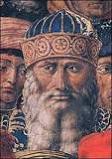

On Feb. 8, 1438 Byzantine emperor John VIII Palaeologus arrives in Venice with a retinue of 700 incl. Constantinople patriarch Joseph II and 20 metropolitans, plus other big brains incl. Neoplatonist philosopher Gemistus Pletho (Plethon) (Georgius Gemistus) (1355-1452), who advocates a return to the Olympian gods, and his student Johannes (Basilius) Bessarion (1403-72); on Apr. 9 the Ecumenical Council of Ferrara convenes, with the patriarch refusing to kiss the pope's foot and instead bowing and kissing his cheek; John VIII Palaeologus pleads for assistance from the Turks encircling Constantinople, proposing a union of the Greek and Roman Catholic Churches; Pletho goes on to meet with Cosimo de' Medici, who founds the Platonic Academy of Florence under Marsilio Ficino (1433-99), who translates all of Plato's works and other Neoplatonist works by Plotinus et al. into Latin, helping revive Greek learning in W Europe; the academy is dissolved after the 1492 death of Lorenzo de' Medici (b. 1449).

In 1500 Dutch "The Praise of Folly" Renaissance humanist Roman Catholic priest-scholar-theologian ("Prince of the Humanists") ("Crowning Glory of the Christian Humanists") Desiderius Erasmus (Lat. "beloved longing") Roterodamus (of Rotterdam) (Gerrit Gerritszoon) (1466-1536), founder of Humanism, first Humanist to earn a living by writing, and first scholar to divide the Bible into verses pub. Adagia (Paris), a collection of 800 Latin and Greek proverbs stolen from his vast reading; he later blows it up to 3K proverbs and changes the title to "Adagiorum Chiliades" (The Thousand Proverbs), then runs it up to 4,658 by his death; many Euro "commonsense sayings" can be traced to this pub., incl. "One step at a time", "Make haste slowly", "Be in the same boat", "Lead by the nose", "From Heaven to Earth", "Weigh anchor", "Grind one's teeth", "Walk on tiptoe", "Even a child can see it", "Out of tune", "A point in time", "To call a spade a spade", "Give as good as one gets", "Can't live with women or without them", "Between a rock and a hard place", "Can't teach a dog new tricks", "Crocodile tears", "The bowels of the Earth", "Look a gift horse in the mouth", "Die laughing", "Break the ice", "Sleep on it", "Walk a tightrope", "Nowhere near the mark", "Complete the circle", "In the land of the blind the 1-eyed man is king". In 1511 he pub. In Praise of Folly (The Praise of Folly) (Stultitiae Laus) (Morias Enkomion), written in 1509, inspired by Faustino Ferisauli's "De Triumpho", a big hit mocking superstition, helping launch the Protestant Reformation, which he never joins; makes a fan of Pope Leo X; dedicated to his friend Thomas More, on whose estate in Bucklersbury he composed it in one week; full of double and triple entendres, incl. the Dutch title, launching the field of Adoxography, "fine writing on a trivial or base subject"; the 1515 Basel ed. is illustrated by Hans Holbein the Younger.

In 1512 Florence-born Italian humanist historian-philosopher-politician-diplomat Niccolo (Niccolò) di Bernardo dei Machiavelli (1469-1527) is fired by the Medicis after they overthrow the Florentine Repub., causing him to write "The Prince (Il Principe)" to suck up to them and get a job, which doesn't work, but at least he gave it the old Macchiavellian try; in 1513 after surviving torture, he retires to his state in Sant'Andrea in Percussina and turns brain man and writer, making himself immortal. In 1520 he is appointed official historian of Florence, and in 1521 he pub. The Art of War (Dell'Arte della Guerra), a Socratic dialogue between Lord Fabrizio Colonna (Machiavelli) and Cosimo Rucellai set in the Orti Oricellari gardens in Florence, developing the concept of limited warfare, i.e., war as an extension of politics, promoting the need for an armed citizenry and state militia and stressing that all of society depends on the security provided by the military; Fabrizio pushes the legions of the early-mid Roman Republic, and advocates adapting them to the current situation in Florence; at the beginning Fabrizio states the purpose of the dialogue as "To honor and reward virtù, not to have contempt for poverty, to esteem the modes and orders of military discipline, to constrain citizens to love one another, to live without factions, to esteem less the private than the public good." In 1531 he pub. Discourses on the First Ten Books of Livy, written in 1517, a discussion of early ancient Roman history claiming that a republic is superior to a principality while calling leaders of democracies princes, and proposing the concept of checks and balances; it contains the soundbytes: "Governments of the people are better than those of princes"; "Government consists mainly in so keeping your subjects that they shall be neither able nor disposed to injure you"; "No prince ever benefitted by making himself hated"; "Let not princes complain of the faults committed by the people subjected to their authority, for they result entirely from their own negligence or bad example"; "In a well-ordered republic it should never be necessary to resort to extra-constitutional measures"; ""Doubtless these means [of attaining power] are cruel and destructive of all civilized life, and neither Christian, nor even human, and should be avoided by every one. In fact, the life of a private citizen would be preferable to that of a king at the expense of the ruin of so many human beings"; "In fact, when there is combined under the same constitution a prince, a nobility, and the power of the people, then these three powers will watch and keep each other reciprocally in check". In 1532 he posth. pub. Florentine Histories (Istorie Florentine) (8 vols.), commissioned by Cardinal Giulio de Medici (later Pope Clement VII) in 1520 and presented to him in May 1526; starts with the 5th cent. fall of the Western Roman Empire to 1215, then covers the history of Florence ending with the death of Lorenzo il Magnifico in 1492, sucking-up to the Medicis and trying to make their takeover seem like evolution. In 1532 he also posth. pub. The Prince (Il Principe), written in vernacular Italian, and first circulated in 1513, becoming the first work of modern political philosophy, taking effective truth as more important than abstract ideals, in conflict with the Scholastic views of the time; teaches generations of Europeans the art of unscrupulousness; dedicates it to Lorenzo Medici, hoping for a job, but get snubbed, and instead sees his name become associated with their modus operandi, with the term Machiavellian becoming a perjorative, as well as Old Nick for the Devil; a favorite of Napoleon, Mussolini, and Lindsay Lohan; forever after everybody wants to be a Machiavellian prince?; "On Taking Power", "On Allies and Subordinates", "Qualities for Praise or Blame", "Liberality or Miserliness?", "Cruelty or Compassion?", "Be Feared or Loved?", "Keeping One's Word or Not?", "Importance of Appearances", "Avoid Being Despised and Hated", "The Value of Enemies", "On Gaining Renown", "Choosing Subordinates", "Avoiding Flatterers", "Living with Chance"; "He who neglects what is done for what ought to be done, sooner effects his ruin than his preservation"; "It is far safer to be feared than loved if you cannot be both" (ch. 17). "God is not willing to do everything, and thus take away our free will and that share of glory which belongs to us"; "Men are more apt to be mistaken in their generalizations than in their particular observations"; "There is no surer sign of decay in a country than to see the rites of religion held in contempt." He dies on June 21, 1527 in Florence.
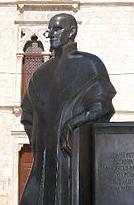
In 1571 Croatian-born Italian Platonic philosopher-scientist Franciscus Patricius (Francesco Patrizi or Patrizzi) of Cherso (1529-97) (student of Bernardino Telesio and master of Giordano Bruno) pub. Discussiones Peripateticae (Discussionum Peripateticorum) (15 vols.) (Basel), which claims that Aristotle's teachings directly oppose Christianity, while Plato's foreshadow it, attacking Aristotle's life and character and the authenticity of his works, attempting to refute his doctrines theologically. In 1591 he pub. Nova de Universis Philosophia (New Philosophy of Ideas) (Basel), which goes back to the Ionians and Presocratics to portray God as "First Light", which is later adopted by Galileo to mathematize physics.
In the early 17th cent. the Age of Reason (Rationalism) in W Europe begins with Rene Descartes, transitioning into the Age of Enlightenment in the 1650s.
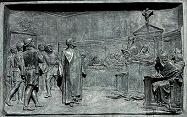



On Feb. 17, 1600 after Cardinal Robert Bellarmine (1542-1621) demands a full recantation of his philosophy, and he appeals to Pope Clement VIII hoping only for a partial recantation, and the pope responds by telling them to burn the bum, Italian philosopher Giordano Roddenberry, er, Giordano Bruno (b. 1548) tells them "Perhaps you, my judges, pronounce this sentence against me with greater fear than I receive it", then is led naked to the Campo de' Fiori in Rome, "his tongue imprisoned because of his wicked words", and burned at the stake for his heretical opinions, esp. the infinity of inhabited worlds; "He insisted till the end always in his damned refractoriness and twisted brain and his mind with a thousand errors. Yes, he didn't give up his stubbornness, not even when the court ushers took him away to the Campo de' Fiori. There his clothes were taken off, he was bound to a stake and burned alive. In all this time he was accompanied by our fraternity, who sang constant litanies, while the comforters tried till the last moment to break his stubborn resistance, till he gave up his miserable and pitiable life" (Fraternity of St. John the Beheaded, 1889); his works are placed on the Vatican's Prohibited Index in 1603, and he becomes a martyr to Trekkies, er, scientists, who claim he was burned just for his Copernican views, causing the Church to claim it was only because of his heretical religious beliefs, incl. that Jesus Christ was merely a magician, the Holy Ghost is the soul of the world, and the Devil can be saved, although the Church gives it away at the time by using the same rooms where he is questioned to persecute Galileo Galilei; his death seems to propel scientific effort in Protestant countries; in 1889 a monument to him backed by Victor Hugo, Herbert Spencer, Ernest Renan, Ernst Haeckel, Henrik Ibsen et al. is erected on the site of his execution, and another is erected in Berlin on Mar. 2, 2008; in 2000 Pope John Paul II expresses "profound sorrow" for what his church did - Burn Bruno Burn is how many years from Live Long and Prosper?

On Nov. 10-11, 1619 (St. Martin's Day) (night) after joining the Dutch States Army in 1618, La Haye en Touraine, France-born philosopher-mathematician (Roman Catholic) (Rosicrucian) ("Father of Modern Philosophy") Rene (René) Descartes (1596-1650) has divine visions in Neuburg an der Donau, Germany in which he "discovered the foundations of a marvelous science", which later becomes Analytic Geometry, along with his famous dictum "Cogito ergo sum" (Je pense donc je suis), causing him to dedicate his life to the mathematical basis of Nature; in 1620 he leaves the army, returning to the Dutch Repub. in 1628, spending 20 years formulating his philosophical works; in 1637 after the horrific Galileo affair, he pub. Discourse on Method (Discourse on the Method of Rightly Conducting One's Reason and Seeking Truth in the Sciences (Discours de la Methode pour bien Conduire sa Raison, et Chercher le Verite dans les Sciences); an epoch-making work expounding the technique of divide and conquer, containing the three appendices (Qui Sont des Essais de Cete Methode): La Dioptrique, advancing the corpuscular theory of light; Les Meteores: Traite de la Lumiere, on cosmology; and La Geometrie, founding the field of analytic geometry and introducing the concepts of a coordinate plane and a mathematical function. In 1644 he pub. Principia Philosophiae (Principles of Philosophy) in Amsterdam, containing the ultimate philosophy soundbyte "Je pense, donc je suis" ("I think, therefore I am"); too bad, it kowtows to the Roman Catholic 1616 anti-Copernican decree by stating that "I want what I have written to be taken simply as an hypothesis, which is perhaps far removed from the truth"; it declares that all motion is relative, thus the Earth can be considered at rest like the Church dictates, drawing criticism from Newton; also that bodies can act on each other only through contact; famous for its diagrams of vortices in which planets are carried in the whirlpool of subtle matter around the Sun - don't try to fight it, don't try and save me, she's a woman in love? In 1662-4 he posth. pub. Treatise on the World, proposing the Dualistic Model of Reality, mind vs. matter.
In the 1650s the Age of Enlightenment (Reason) begins in W Europe (until 1789), with coffeehouse and salon thinkers (philosophes) backed by the Masonic movement challenging the authority of the Church and promoting reason and individualism, causing more and more brain men to vote with their feet by leaving the ranks of churchmen and joining the ranks of scientists.
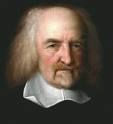
In 1651 Wiltshire, England-born political philosopher Thomas Hobbes of Malmesbury (Thomas Hobbs of Malmsbury) (1588-1679) pub. his magnum opus Leviathian; or The Matter, Form and Power of a Commwealth Ecclesiastical and Civil, which justifies the sovereignty of the Commonwealth, noting that life is "solitary, poor, nasty, brutish and short" (ch. 13), and all men fear each other, hence must submit to the supremacy of the state in secular and religious matters, yet attacks the papacy, pissing-off the French and causing him to flee Paris back to England, where the royalists are also pissed-off, causing him to seek protection from the rev. English govt.; "Imagination and memory are but one thing, which for divers considerations hath divers names" (vol. 2); founds Social Contract Theory; his portrait bears a striking resemblance to William Shakespeare grown cynical? He goes on to break English philosophy from scholasticism and found scientific sociology, ethics, and politics.

On Aug. 16, 1662 French savant mathematician-physicist-philosopher Blaise Pascal (b. 1623) blazes out in Paris at age 39 after rejecting medical care, with the soundbyte: "Sickness is the natural state of Christians"; last words: "May God never abandon me"; he leaves Pensees (Pensées) (Fr. "Thoughts") (pub. 1670), which anticipates Existentialism, Pragmatism, and Voluntarism, and contains the first formal use of decision theory; section 180 incl. the immortal soundbyte: "Had Cleopatra's nose been shorter, the whole face of the world would have been changed"; section 223 contains Pascal's Wager, which claims that there is an infinite gain or loss if God exists, hence a rational person should live as though he does, because if God does not exist, there is only a finite possible loss; "We are incapable of knowing either what [God] is or whether he is... Reason cannot decide this question. Infinite chaos separates us. At the far end of this infinite distance a coin is being spun which will come down heads or tails. How will you wager?"; Pascal becomes the first modern philosopher, who sees that the existence of God can neither be proved nor disproved, and that belief is a matter of choice; "When I see the blind and wretched state of man, when I survey the whole universe in its dumbness and man left to himself with no light, as though lost in this corner of the universe, without knowing wh put him there, what he has come to do, what will become of him when he dies, incapable of knowing anything. I am moved to terror, like a man transported in his sleep to some terrifying desert island, who wakes up quite lost with no means of escape. Then I marvel that so wretched a state does not drive people to despair"; "For after all what is man in nature? A nothing in relation to infinity, all in relation to nothing, a central point between nothing and all and infinitely far from understanding either. The ends of things and their beginnings are impregnably concealed from him in an impenetrable secret. He is equally incapable of seeing the nothingness out of which he was drawn and the infinite in which he is engulfed"; "Diversion is the only thing that consoles us in our wretchedness, and yet diversion is itself the greatest of our miseries. For it is diversion above all that keeps us from seriously taking stock of ourselves and so leads us imperceptibly to perdition": "Men never do evil so completely and cheerfully as when they do it from religious conviction"; "The heart has its own reasons which reason does not know" - he quit thinking and was not?
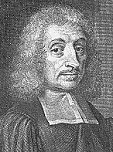
In 1669 Flemish philosopher Arnold Geulincx (1624-69) dies after trying to refine Cartesian philosophy, coming up with the dictums "Ita est, ergo ita sit" (It exists, therefore it is so), and "Ubi nihil vales, ibi nihil velis" (Where you are worth nothing, there you should want nothing), making a fan of Irish novelist Samuel Beckett (1906-89), who quotes him in his novel "Molloy" (1950).

In 1670 after breaking with Judaism after his father dies and going rationalist, pioneering modern Biblical criticism, Amsterdam-born Dutch Jewish philosopher Baruch (Benedict de) Spinoza (1632-77) anon. pub. Tractatus Theologico-Politicus, becoming the first Jewish philosopher to break from 12th cent. Spanish Jew Moses Maimonides, no longer reading the Bible homiletically or allegorically, but rationally, laying the foundations for modern textual criticism and fostering the eternal split between rationality and faith, claiming that if one interpreted the Bible through reason, it proves to be a human not a divinely inspired document; he also shows the contradiction between being a traditional Jew and a true liberal, pissing-off Jews with his rejection of the idea of a Chosen People, claiming that Jews survive by separatism, circumcision, and Gentile hatred, and that the Torah is the constitution of a Jewish state, hence kaput. On Feb. 21, 1677 he dies in The Hague of TB or silicosis caused by glass dust from his lens grinding trade, leaving Ethics, Demonstrated in Geometrical Order, a philosophical treatise that tries to mimic Euclid's Elements, "the last indisputable Latin masterpiece, and one in which the refined conceptions of medieval philosophy are finally turned against themselves and destroyed entirely", causing Georg Wilhelm Friedrich Hegel to later utter the soundbyte: "You are either a Spinozist or not a philosopher at all"; Pt. 2 focuses on the human mind and body, disputing Rene Descartes' mind-body dualism, arguing that they are one; Pt. 3 attempts to show that moral concepts incl. good, evil, virtue, and perfection have a basis in human psychology; "A free man thinks of nothing less than of death"; "The human mind cannot be absolutely destroyed with the body, but something of it remains which is eternal"; "When the mind imagines its own lack of power, it is saddened by it".

In 1686 Leipzig, Germany-born superbrain philosopher-mathematician (co-inventor of Calculus with Isaac Newton) Gottfried Wilhelm (von) Leibniz (Leibnitz) (1646-1716) writes Discourse on Metaphysics, which isn't pub. until the 19th cent., proposing that good exists independently of God, and that this world is the best of all possible worlds; it contains the soundbyte: "The opinions of scholastic philosophers are not to be wholly despised." In 1695 he begins writing New Essays on Human Understanding, a refutation of John Locke's 1690 work, which he finishes in 1705, but withholds from pub. because of Locke's 1704 death, and it isn't pub. until 1765. In 1750 he pub. (his only book pub. during his lifetime) Theodicee (Théodicée) (Essays of Theodicy on the Goodness of God, the Freedom of Man and the Origin of Evil), which claims that this world is the best of all possible worlds, causing Voltaire to lampoon him in Candide (1759). In 1714 he writes his 90-paragraph philosophical magnum opus La Monadologie (pub. posth.), which proposes that the Universe is composed of eternal, indecomposable, irreducible elementary particles ("substantial forms of being") with blurred perceptions of each other, which can be compared to Descartes' corpuscles, never interacting but each reflecting the entire Universe in a pre-established harmony (little mirrors of the Universe); monads are the true centers of all force, while space, matter, and motion are mere phenomena; too bad, he considers each human being to be a monad in an attempt to overcome the mind-matter and free will problems.

In 1689 Somerset, England-born philosopher ("Father of Classical Liberalism") John Locke (1632-1704), founder of the school of Philosophical Empiricism anon. pub. Two Treatises on Government, a justification of the Glorious Rev.; treatise #1 nixes the divine right of kings; treatise #2 claims that authority derives solely from the consent of the governed, and advocates govt. by contract; both are later used by the Am. rebels to justify their own glorious rebellion against the stankin' English; defines property as a person's life, liberty, and wealth; "God hath given the world to men in common... Yet every man has a property in his own person. The labour of his body and the work of his hands we may say are properly his. Whatsoever, then, he removes out of the state that nature hath provided and left it in, he hath mixed his labour with, and joined to it something that is his own, and thereby makes it his property"; "The great and chief end, therefore, of men's uniting into commonwealths, and putting themselves under government, is the preservation of their property"; "That all men by nature are equal, I cannot be supposed to understand all sorts of equality: age or virtue may give men a just precedency: excellency of parts and merit may place others above the common level: birth may subject some, and alliance or benefits others, to pay an observance to those to whom nature, gratitude, or other respects, may have made it due: and yet all this consists with the equality, which all men are in, in respect of jurisdiction or dominion one over another; which was the equality I there spoke of, as proper to the business in hand, being that equal right, that every man hath, to his natural freedom, without being subjected to the will or authority of any other man"; "Wherever law ends, tyranny begins, if the law be transgressed to another's harm; and whosoever in authority exceeds the power given him by the law, and makes use of the force he has under his command, to compass that upon the subject, which the law allows not, ceases in that to be a magistrate; and, acting without authority, may be opposed, as any other man, who by force invades the right of another." In 1689 he pub. A Letter Concerning Toleration. In 1690 he pub. An Essay Concerning Human Understanding (4 vols.), which claims that no ideas are innate, and that the mind is a Tabula Rasa or blank slate at birth, becoming the first to define the self via a continuity of consciousness. In 1693 he pub. Some Thoughts Concerning Education, about how it's better to study a tree than just read a book about one, and how the mind must be disciplined via the use of logic and the refutation of fallacies; children should have their physical "habits" nurtured before starting their academic education.

In 1710 Irish philosopher-mathematician and Anglican bishop of Cloyne (County Cork) George Berkeley (1685-1753) (namesake of Berkeley, Calif.) pub. his magnum opus A Treatise Concerning the Principles of Human Knowledge, which attempts to prove Immaterialism AKA Subjective Idealism, which holds that the outside world is composed solely of ideas; "Ideas can only resemble ideas"; "To be is to be perceived."
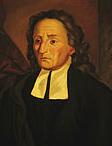
In 1710 Naples-born Italian political philosopher-historian Giambattista Vico (1668-1744) pub. De Antiquissima Italorum Sapientia, ex Linguae Latinae Originibus Eruenda ("On the Most Ancient Wisdom of the Italians, Unearthed from the Origins of the Latin Language); known for the soundbyte "verum esse ipsum factum" (the true itself is fact), meaning that truth is verified through creation or invention and not through observation a la Descartes; "The criterion and rule of the true is to have made it. Accordingly, our clear and distinct idea of the mind cannot be a criterion of the mind itself, still less of other truths. For while the mind perceives itself, it does not make itself." In 1725 he pub. his magnum opus The New Science (Principii d'una Scienza Nuova Intorno Alla Commune Natura Delle Nazione), which attacks the separateness of body and mind, along with Cartesian analysis and other forms of reductionism in favor of systemic thinking, propounding a cyclical view of history (the divine, heroic, and human phases), founding the modern philosophy of history; "[We] must take seriously Vico's great observation that men make their own history, that what they can know is what they have made, and extend it to geography." (Edward Said)

In 1721 Breslau, Silesian-born German mathematician-philosopher Christian Wolff (1679-1754) of the U. of Halle, a disciple of Gottfried Leibnitz known for ditching Latin for German gives the lecture "On the Practical Philosophy of the Chinese", citing the moral axioms of Confucius as proof that human reason can attain moral truth by its own efforts without Biblical revelation, pissing-off the religious (mainly Pietist) faculty; on July 12, 1723 Wolff gives another lecture comparing Moses, Christ, Mohammad, and Confucius, which attracts 1K students, pissing-off the Pietists, who convince Frederick William I that Wolff's determinism would ruin military discipline, causing him to be banished to Prussia for atheism and fatalism, where he teaches at the U. of Marburg in Hesse-Cassel until 1740, when Frederick II the Great recalls him and makes him a celeb, getting him promoted to chancellor of the U. of Halle in 1743.

In 1739 Edinburgh, Scotland-born empiricist philosopher David Hume (1711-76) ("widely regarded as the greatest who has ever written in the English language") pub. his magnum opus A Treatise of Human Nature (2 vols.) (1739-40), which denies the existence of innate ideas, claiming that all contents of mind are solely built from sense experiences, and dissing Rene Descartes, claiming that desire rather than reason governs human behavior, pioneering Logical Positivism (Empiricism); too bad, it is ignored by the public, causing him to call it "dead-born", until Immanuel Kant credits him with awakening him from "dogmatic slumbers" about 1770; "There is more to be learned from each page of David Hume than from the collected philosophical works of Hegel, Herbart and Schleiermacher taken together" (Arthur Schopenhauer).
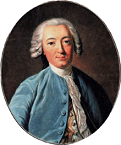
In 1758 Paris-born French Freemason philosopher Claude Adrien Helvetius (Helvétius) (1715-71) pub. his magnum opus De l'Esprit; or, Essays on the Mind, and Its Several Faculties (English tr. 1810), attempting to refute Montesquieu's 1748 "Spirit of the Laws' and its theory that climate influences nat. character, declaring that all human faculties are attributes of mere physical sensation, and that the only real motive is self-interest, and therefore there is no good and evil, only competitive pleasures, hence hedonism rules; pisses-off the theological faculty of the Sorbonne, who publicly burn his work in 1759, causing him to travel in England, then Germany, where Frederick II the Great receives him with honor, allowing him to retire to his country estate back in France.
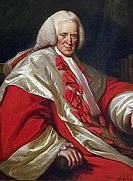
In 1758 Scottish Englightenment philosopher Henry Home, Lord Kames (1696-82) (patron of David Hume, Adam Smith, James Boswell et el.) pub. Historical Law-Tracts, first describing human social evolution in four stages, incl. hunter-gatherer, herder, farmer, and commerce (market towns), founding the fields of anthropology and sociology along with the modern study of history. In 1762 he pub. Elements of Criticism (2 vols.) (5th ed. 1772), examining the rules of lit. composition and attempting to establish a new theory based on the principles of human nature, calling the 18th cent. tradition of sentimental lit. hogtied to the notion that "the genuine rules of criticism are all of them derived from the human heart"; "Genius is allied to a warm and inflammable constitution, delicacy of taste to calmness and sedateness. Hence it is common to find genius in one who is a prety to every passion; which can scarce happen with respect to delicacy of taste. Upon a man possessed of that blessing, the moral duties, not less than the fine arts, making a deep impression, counterbalance every irregular desire; at the same time, a temper calm and sedate is not easily moved, even by a strong temptation." In 1774 he pub. Sketches of the History of Man (3 vols.) (2nd ed. 1788), which advocates polygenism, claiming that the environment can't account for racial differences, therefore the races must have been created by God in separate regions. In 1781 he pub. Loose Thoughts on Education, which plays a significant role in developing the subject of English as a discipline in Scottish univs.

A brilliant thinker's writings get twisted into blind herd loyalty for Herr Herder, er, Hitler? In 1763-4 Mohrungen, Prussia-born German philosopher and Lutheran pastor Johann Gottfried von Herder (1744-1803), (student of Immanuel Kant, who inspires Goethe to launch the Sturm and Drang Movement before rejecting it himself), a Volksgeist nationalist known for the soundbyte: "Spew out the ugly slime of the Seine. Speak German, O You German!" pub. Essays on Being (2 vols.). In 1765 he pub. How Philosophy Can Become More Universal and Useful for the Benefit of the People. In 1769 he coins the term "Zeitgeist" (Spirit of the Age), spending his career struggling with the concept of Volksgeist (Spirit of the People) (coined by Hegel in 1801), the natural self-clumping of people into self-sufficient er, herds, with the soundbyte: “There is only one class in the state, the Volk (not the rabble), and the king belongs to this class as well as the peasant", walking the fence of racism while holding onto the Biblical Garden of Eden story and its implication that there are no such things as races like so-called anthropologist Johann Blumenbach was pushing, with the soundbyte: "Denn jedes Volk ist Volk", saying that all people have the same internal anatomy, with the soundbyte: "Neither the Pongo [chimpanzee] nor the Longimanus [gibbon] is your brother, but truly the American [Indian] and the Negro are." Too bad, he steps on his dick with the statement that a few hundred years earlier the inhabitants of Germany were Patagonians from South Am., and slides back into racism with the soundbyte: "Had Greece been people with Chinese, our Greece would never have existed", and worse: "Chinese they were, and will remain: a people endowed by nature with small eyes, a short nose, a flat forehead, little beard, large ears, and a protuberant belly... Nature seems to have refused them as well as many other nations in this corner of the world, great invention in Science, while on the other hand he has beautifully conferred on their little eyes a spirit of application, adroit diligence and nicety, a talent of imitating with art whatever their cupidity deems useful. Eternally moving, eternally occupied, they are forever going and coming, in quest of gain, or in fulfillment of their offices"; Herder calls Volksgeist "singular, marvelous, inexplicable, ineffible", likening it to a plant that grows, blooms, and withers, requiring its history to be studied, but snubbing ancient and modern history for the Middle Ages, expanding its scope to incl. language, culture, customs, religion, lit., law, and folklore, going on to pub. the hit "Voices of the People in Their Songs" (Stimmen der Volker in ihren Lidern) in 1773, a collection of folk songs; too bad, Volkgeist becomes a concept that everybody believes in although nobody can quite define it, opening the door wide to all-out racism? In 1774 he pub. This Too a Philosophy of History for the Formation of Humanity, which champions the individuality of cultures, believing that each Volk is adapted to a particular ecological niche; "If every one of these nations had remained in its place, the Earth might have been considered as a garden, where in one spot one human national plan, in another, another, bloomed in its proper figure and nature"; too bad, "As man are not firmly rooted plants, the calamities of famine, earthquakes, war and the like, must in time remove them from their place to some other more or less different", and almost every Volk "has migrated at least once, sooner or later, to a greater distance, or less." In 1784 he begins pub. Ideas for a Philosophy of History of Mankind (Ideen zur Philosophie der Geschichte der Menschheit) (4 vols.) (1784-91), which explores the central ideas of nationalism, starting with the existence of a nation that has a unique claim to be considered a legitimate political basis for sovereignty, concluding that they must speak the same language; "Has a people anything dearer than the speech of its fathers? In its speech resides its whole thought-domain, its tradition, history, religion, and basis of life, all its heart and soul. To deprive a people of its speech is to deprive it of its one eternal good... As God tolerates all the different languages in the world, so also should a ruler not only tolerate but honor the various languages of his peoples... The best culture of a people cannot be expressed through a foreign language; it thrives on the soil of a nation most beautifully, and, I may say, it thrives only by means of the nation's inherited and inheritable dialect. With language is created the heart of a people; and is it not a high concern, amongst so many peoples—Hungarians, Slavs, Rumanians, etc to plant seeds of well-being for the far future and in the way that is dearest and most appropriate to them?"; "Nature brings forth families; the most natural state is thus also one people with one national character. This maintains itself in it for millennia and can, if it matters to its native prince, be developed in the most natural way: for a people is like a plant of nature; like a family, only one with several branches. Nothing is so contrary to the purpose of government, as the unnatural aggrandizement of states, the wild mixing of types of men and nations under one scepter" - get to Golden Pond before the lake dries up? He likes to wax lyrical about the Volk and the Vaterland: "He is deserving of glory and gratitude who seeks to promote the unity of the territories of Germany through writings, manufacture, and institutions", and "But now! Again I cry, my German brethren! But now! The remains of all genuine folk-thought is rolling into the abyss of oblivion with a last and accelerated impetus. For the last century we have been ashamed of everything that concerns the fatherland." He goes on to preach against systematicity in philosophy, establishing a countertradition later continued by Karl wilhelm Friedrich Schlegel, Friedrich Nietzsche, and Ludwig Wittgenstein, also snubbing aphorism and aphorist arguments. Too bad, he considers the Jews a Volk that because of the Diaspora works only to subvert and destroy other Volk, advocating the final solution of er, restoring their homeland in Israel to discharge the debt of cents. of abuse: with the soundbytes: "The Jewish people is and remains in Europe an Asiatic people alien to our part of the world, bound to that old law which it received in a distant climate, and which, according to its confession, it cannot do away with"; "How many of this alien people can be tolerated without injury to the true citizens?"; "A ministry in which a Jew is supreme, a household in which a Jew has the key of the wardrobe and the management of the finances, a department or commissariat in which Jews do the principal business, are Pontine marshes which cannot be drained." Too bad, his liberal side is usually forgotten by anti-Semites and racists: "National glory is a deceiving seducer. When it reaches a certain height, it clasps the head with an iron band. The enclosed sees nothing in the mist but his own picture; he is susceptible to no foreign impressions"; "Notwithstanding the varieties of the human form, there is but one and the same species of man throughout the whole earth"; he also supports the French Rev., democracy, and individuality of people and cultures, with the soundbyte: "A human soul is an individual in the realm of minds: it senses in accordance with an individual formation, and thinks in accordance with the strength of its mental organs... My long allegory has succeeded if it achieves the representation of the mind of a human being as an individual phenomenon, as a rarity which deserves to occupy our eyes." He dies on Dec. 18, 1803 in Weimar, leaving the unfinished Outlines of a Philosophy of the History of Man, which founds the philosophical school of historical thought, wth the soundbyte: "One must go into the age, into the religion, into the whole history, and feel one's way into everything" to become the "regenerated contemporary" of the past, treating history as a science and an "instrument of the most genuine patriotic spirit"; "Compare England with Germany: the English are Germans, and even in the latest times the Germans have led the way for the English in the greatest things."

In 1764 Strachan-born Scottish philosopher Thomas Reid (1710-96) pub. An Inquiry Into the Human Mind on the Principles of Common Sense, which claims that common sense (sensus communis) is the true foundation of all philosophical inquiry, and that the foundations upon which our sensus communis are built justify our belief that there is an external world, dissing Locke and Descartes; a big hit, getting him Adam Smith's job of prof. of moral philosophy at the commonsensical U. of Glasgow, where he becomes "Hume's earliest and fiercest critic", even though he admires him, founding the Scottish School of Common Sense (Sense Realism), which fuels the Scottish Enlightenment and influences Thomas Jefferson et al., being regarded as more important than Hume into the 1800s.

On May 30, 1778 after a dazzling career cranking out 20K letters and 2K books and pamphlets criticizing the Bible, the Roman Catholic Church, and Islam, advocating freedom of religion, thought, and speech, and separation of church and state, spending time in the Bastille and returning to Paris for the first time in 20 years and falling ill, French Englightenment philosopher (Deist) (known for his lightning wit and satire) Voltaire (Francois-Marie Arouet) (1694-1778) dies, leaving Mahomet the Prophet; or, Fanaticism (play) (1741), Zadig; or The Book of Fate (novel) (1747), Micromegas (Micromégas) (short story) (1752), Candide; or Optimism (novel) (1759), and Philosophical Dictionary (Dictionnaire Philosophique) (1764); after his incarceration in the Bastille, Arouet adopted the nom de plum of Voltaire, an anagram of Arovet li, the Latinized spelling of his surname Arouet plus "le jeune" (the younger), the reverse pronunciation echoing his family chateau Airvault in Poitou; it suggests volte-face, voltige (acrobatics), and volatile (winged creature), separating himself from rouer (to be broken on the wheel) and roue (debaucher); "[The ideal religion]: Would it not be that which taught much morality and very little dogma that which tended to make men just without making them absurd? That which did not order one to believe in things that are impossible, contradictory, injurious to divinity, and pernicious to mankind, and which dared not menace with eternal punishment anyone possessing common sense? Would it not be that which did not uphold its belief with executioners, and did not inundate the earth with blood on account of unintelligble sophism?... which taught only the worship of one god, justice, tolerance and humanity?"; "What conclusion can we draw from all this? That atheism is a monstrous evil in those who govern; and also in lettered men even if their lives are innocent; because from their studies they can affect those who hold office, and that, even if it is not as hateful as fanaticism, it is nearly always fatal to virtue. Above all, let me add that there are fewer atheists today than there have ever been, since philosophers have perceived that there is no vegetative being wihtout germs, no germ with design, etc."; "He who has heard the same thing told by 12,000 eye-witnesses has only 12,000 probabilties, which are equal to one strong probability, which is far from certainty"; "Historians are gossips who tease the dead"; "History is filled with the sound of silken slippers going downstairs and wooden shoes coming up"; "All the ancient histories, as one of our wits say, are just fables that have been agreed upon"; "If God did not exist, it would be necessary to invent him" (Nov. 10, 1770); "Christianity is the most ridiculous, the most absurd and bloody religion that has ever infected the world"; "Originality is nothing but judicious imitation"; "No snowflake in an avalanche ever feels responsible"; "To learn who rules over you, simply find out who you are not allowed to criticize"; "But that a camel-merchant [Muhammad] should stir up insurrection in his village; that in league with some miserable followers he persuades them that he talks with the angel Gabriel; that he boasts of having been carried to heaven, where he received in part this unintelligible book, each page of which makes common sense shudder; that, to pay homage to this book, he delivers his country to iron and flame; that he cuts the throats of fathers and kidnaps daughters; that he gives to the defeated the choice of his religion or death: this is assuredly nothing any man can excuse, at least if he was not born a Turk, or if superstition has not extinguished all natural light in him." In 1864 his tomb is opened and discovered to be empty.

In July 1781 after setting out to explore the limits and conditions of knowledge, Konigsberg, Prussia-born German philosopher Immanuel Kant (1724-1804) pub. Critique of Pure Reason (Kritik der Reinen Vernunft) in Riga (2nd ed. 1787), which rejects David Hume's extreme empiricism, proposing that there is more to knowledge than bare sense experience, distinguishing between "a posteriori" and "a priori" knowledge, the former derived from perception, hence occurring after it, and the latter a property of thought, independent of experience and existing before it, founding the Idealist School of Philosophy, which promotes Transcendental Idealism and the Transcendental Aesthetic, dividing knowledge into sensible (based on the senses) and logical (based on reason), reversing the assumption that experience is shaped by reality with the assumption that reality is shaped by experience, blowing the bubble of theists by ruling out the possibility of acquiring knowledge of his existence and nature along with the soul's; he ends up turning ontological questions into epistemological ones - I know what I want to say but it takes so many pages to say it? In 1785 he pub. Foundations (Groundwork) (First Principles) of the Metaphysics of Morals (Ethics); presents the concept of the Categorical Imperative, which tells us which actions are obligatory and which forbidden, all without mean old Jehovah and his Bible? In 1788 he pub. Critique of Practical Reason, claims that pure practical reason must not be restrained like pure theoretical reason, but cultivated, founding deontological moral philosophy, making a fan of Johann Gottlieb Fichte. In 1790 he pub. Critique of Judgment (Kritik der Urteilskraft), which founds modern aesthetics; divided into Critique of Aesthetic Judgment and Critique of Teleological Judgment. In 1797 he pub. The Metaphysics of Morals (Die Metaphysik der Sitten); divided into the Doctrine (Science) of Right (Metaphysical Elements of Justice) and the Doctrine of Virtue, promoting classical republicanism in political philosophy. In 1798 he pub. Anthropology from a Pragmatic Point of View, based on lectures delivered in 1772-96, trying to define anthropology as a branch of philosophy, dividing it into a physiological category ("what nature makes of the human being") and a pragmatic category (what things a human "can and should make of himself").

In 1797 Rammenau, Saxony-born German Idealist philosopher (disciple of Immanuel Kant) Johann Gottlieb Fichte (1762-1814) pub. Foundations of Natural Right, which argues that self-consciousness is a social phenomenon, requiring the existence of other rational subjects, who summon the self out of its unconsciousness into an awareness of itself as a free individual, creating a "relation of right", meaning that each conscious agent should retain their own "sphere of freedom" in which they are free from outside forces. Too bad, in 1799 he is dismissed from the U. of Jena for atheism, ending up in Berlin, and in 1806 after Napoleon occupies Germany and crushes the Prussian army at Jena in 1806, causing him to freak out and go nationalist, he pub. Addresses to the German Nation, whipping-up nationalist feeling and guiding the uprising against him, helping found German nationalism.

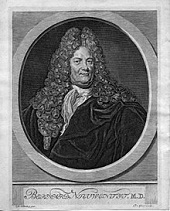
In 1802 Petersborough-born English Anglican clergyman William Paley (1743-1805) pub. Natural Theology, or Evidences of the Existence and Attributes of the Deity, based on The Religious Philosopher: or, The RIght Use of the Contemplation of the World, for the Conviction of Atheists and Infidels (2 vols.) (1715), by Dutch theologian Bernard Nieuwentyt (Nieuwentijdt) (Nieuwentjit) (1654-1718), introducing the watchmaker analogy of God.


In 1807 Stuttgart, Germany-born Idealist philosopher ("the Protestant Aquinas" - Karl Barth) Georg Wilhelm Friedrich Hegel (1770-1831) pub. The Phenomenology of Spirit (Mind) (Phanomenologie des Geistes), his first major work, which gets him a job as dir. of the gymnasium of Nuremberg in 1808-16; it proposes the Thesis-Antithesis-Synthesis dialectic according to which knowledge pushes forwards to greater certainty, and ultimately towards knowledge of the noumenal world, making fans of Marx, Nietzsche et al. In 1812 he begins pub. The Science of Logic (Wissenschaft der Logic) (Die Objektive Logik) (3 vols.) (1812, 1813, 1816); rev. 1831; how history is a progressive process from Pure Being (China) to the Absolute Idea (Prussia) (pure thought thinking about pure thought), based on the dialectic (thesis + antithesis = synthesis); "This unity is consequently the absolute and all truth, the Idea which thinks itself"; "The power of the Spirit is only as great as its expression, its depth only as deep as it dares to spread out and lose itself in its exposition"; "The history of the world is the discipline of the uncontrolled natural will, bringing it into obedience to a universal principle and conferring subjective freedom. The East knew, and to the present day knows, that 'one' is free; the Greek and Roman world, that 'some' are free; the German world knows that 'all' are free", therefore America is the land of the future, and the Absolute will reveal itself one day, perhaps in a contest between North and South America", with war being necessary, along with class structures and the state; his 1811 marriage makes him get serious, and this work gets him a job as prof. of philosophy at the U. of Heidelberg in 1816, followed by prof. of philosophy at the U. of Berlin in 1818-31. In 1816 he pub. Encyclopedia of the Philosophical Sciences; rev. ed. pub. in 1827, 1830. In 1820 he pub. Grundlinien der Philosophie des Rechts (Elements of the Philosophy of Right), which claims that a person is not really free unless he participates in the life of the state, dissing Jakob Friedrich Fries (1773-1843) for participating in student agitation and the Burschenschaft and for being emotional instead of rational, causing Fries to diss him for defending the govt. order to keep his privileged position, with the soundbyte: "Hegel's metaphysical mushroom has grown not in the gardens of science but on the dunghill of servility" - 50 is the new 30?


In Dec. 1818 Danzig-born German philosopher Arthur Schopenhauer (1788-1860) (known for his Bozo-style haircut) pub. his magnus opus The World as Will and Representation (Idea) (Die Welt als Wille und Vorstellung) (2nd ed. 1844), which claims that the world is driven by a continually-dissatisfied will that is ever seeking satisfaction; "The truth was recognized by the sages of India"; the pull of "transcendental ideality" turns him into an atheist; calls the genital organs the focus of the will - he was thinking with his dick and driven by his balls?

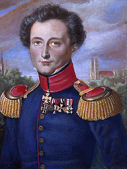
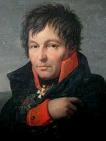
In 1832 Prussian Gen. Carl von Clausewitz (1780-1831) posth. pub. On War (Vom Kriege) (3 vols.), edited and pub. by his wife Countess Marie von Bruhl (Brühl) (1779-1836); a prof. soldier, disciple of Prussian Gen. Gerhard Johann David Waitz von Scharnhorst (1755-1813) who spent most of his life fighting Napoleon while educating himself on history, art, and science gives his analysis of war based on a dialectical method, with the gen. message being that "the conduct of war could not be reduced to universal principles", and that war belongs fundamentally to the social realm, not the realms of art or science; "War is not merely a political act, but also a real political instrument, a continuation of political commerce, a carrying out of the same by other means", i.e., an instrument of Politik (policy + politics); the two main objectives of war are to achieve limited aims, and to disarm the enemy (render him politically helpless or militarily impotent); all else being equal, the war will tend to favor the side with the stronger emotional or political motivations, and the defender; discusses "military genius", "critical analysis", "the fascinating trinity" (Wunderliche Dreifaltigkeit), "absolute or ideal war" vs. "real war", "the fog of war"; strategic and operational "centers of gravity"; "the culiminating point" of the offensive or the victory; never uses the term "total war", but later disciples read it between the lines; meanwhile the work makes him "the preeminent military and political strategist of limited war in modern times." (Robert Osgood) - pull up to the boy's club in one of these?

In 1836 Boston, Mass.-born philosopher Ralph Waldo Emerson (1803-82) pub. the essay Nature, followed on Aug. 31, 1837 by the speech The American Scholar to the Phi Beta Kappa Society at Harvard U. ("America's Intellectual Declaration of Independence" - Oliver Wendell Holmes Sr.), founding the philosophy of Transcendentalism, which believes in the inherent goodness of people and Nature, and distrusts human orgs. incl. organized religion and political parties, preaching independence and self-reliance, "the infinitude of the private man". In 1841 he pub. Self-Reliance, with the soundbytes: "A foolish consistency is the hobgoblin of little minds, adored by little statesmen and philosophers and divines"; "To be great is to be misunderstood"; “To believe your own thought, to believe that what is true for you in your private heart is true for all men, — that is genius. Speak your latent conviction, and it shall be the universal sense; for the inmost in due time becomes the outmost." In 1841 he pub. The Over-Soul, containing the soundbyte: "The Supreme Critic on the errors of the past and the present, and the only prophet of that which must be, is that great nature in which we rest, as the earth lies in the soft arms of the atmosphere; that Unity, that Over-soul, within which every man's particular being is contained and made one with all other; that common heart." He dies on Apr. 27, 1882 in Concord, Mass. of pneumonia after years of failing memory makes him cancel public appearances. "Trust thyself"; "We are always getting ready to live but never living"; "Money often costs too much"; "Character is higher than intellect."

In 1841 Landshut, Bavaria-born German philosopher-anthropologist Ludwig Andreas von Feuerbach (1804-72) pub. his magnum opus The Essence of Christianity (Das Wesen des Christentums), which claims that religious faith is based on contradictions, and that its true essence is anthropological, and God is the outward projection of man's inward nature; Charles Darwin, Karl Marx, Friedrich Engels, Richard Wagner, Friedrich Nietzsche, and Sigmund Freud become fans.

In 1841 the German establishment begins a Hegelianism Elimination Program from the minds of Prussian youth, and Frederick IV calls philosopher Freidrich Wilhelm Joseph Schelling (1775-1854), whose "identity of subject and object" philosophy, based on Kant, Fichte, and Spinoza has been tested in most leading German univs. to Berlin.




In 1842 German Young Hegelian Friedrich Engels (1820-95) meets former Young Hegelian, German Jewish know-it-all Karl Marx (1818-83) at the offices of the Rheinische Zeitung in Manchester, England, but they are not impressed with each other; Engels hooks up in Manchester with Irish working class radical Mary Burns (1821-63), shacking up with her without doing that old-fashioned marriage thang, making enough money to support Marx, who next June 19 marries childhood friend, Prussian aristocrat Baroness Johanna Bertha Julie Jenny Freiin von Westphalen (1814-81) (after Marx dedicated his doctoral thesis to her liberal father Ludwig von Westphalen); they go on to have seven children, only three of whom survive to adulthood, Jenny, Laura, and Eleanor. On Aug. 28, 1844 after sending his first economic work "Outline of a Critique of Political Economy" to be pub. by Marx, Friedrich Engels meets Karl Marx again at the Cafe de la Regence in Paris, and this time they become close pals. In 1845 Engels pub. The Condition of the Working Class in England in Leipzig, written in Manchester, England in Sept. 1844-Mar. 1845, where he witnessed "the most unconcealed pinnacle of social misery in our day" incl. child labor and degrading working conditions, making a fan of Karl Marx. In 1845 German writer Wilhelm Weitling (1808-71) pub. Der Evangelium eines Armen Sunders (The Poor Sinner's Gospel), which traces Communism to 1st cent. Christianity, impressing Karl Marx. On Feb. 1, 1848 London Tribune reporter (managing ed. Richard Henry Dana Jr. - a coincidence? Did he mention his California days?) Karl Marx (1818-83) and Friedrich Engels (1820-95) pub. The Manifesto of the Communist Party in London as a broadside for the coming revolutions, containing the immortal soundbyte: "When, in the course of development, class distinctions have disappeared, and all production has been concentrated in the hands of a vast association of the whole nation, the public power will lose its political character. Political power, properly so called, is merely the organized power of one class for oppressing another. If the proletariat during its contest with the bourgeoisie is compelled, by the force of circumstances, to organize itself as a class, if, by means of a revolution, it makes itself the ruling class, and, as such, sweeps away by force the old conditions of production, then it will, along with these conditions, have swept away the conditions for the existence of class antagonisms and of classes generally, and will thereby have abolished its own supremacy as a class"; "A specter is haunting Europe, the specter of Communism"; "Those of its members who work, acquire nothing, and those who acquire anything, do not work"; when the little revvies all fizzle the document is repub. as The Communist Manifesto 20 years later, and those who think that socialism can be implemented bloodlessly are labelled as "utopian socialists"; of course the new Communist movement is militantly atheistic and anti-clerical. "Religious suffering is, at one and the same time, the expression of real suffering and a protest against real suffering. Religion is the sigh of the oppressed creature, the heart of a heartless world, and the soul of soulless conditions. It is the opium of the people." - Karl Marx, Critique of Hegel's Philosophy of Right, Intro. (1843)

On Feb. 20, 1843 excited by the new science of psychology, Copenhagen, Denmark-born hunchback philosopher Soren (Søren) Aabye Kierkegaard (1813-55) pub. Either/Or: A Life Fragment (Enten - Eller) under the alias Victor Eremita (Victorious Hermit), about how consciousness progresses from a hedonistic aesthetic mode to a mature conscience characterized by ethical imperatives; On Oct. 16, 1843 he pub. Fear and Trembling (Begrebet Angst) under the alias Johannes de Silentio, contrasting Abraham's sacrifice of his son Isaac with Agamemnon's sacrifice of his daughter Iphigenia; title refers to Philippians 2:12 and Psalms 55:5; incl. The Knight of Faith, about the cool individual who places complete faith in himself and in God, contrasted with the knight of infinite resignation; rocks the Danish Lutheran church with its rejection of Hegelianism and anticipation of Existentialism, which dumps Idealism for the concrete reality of a "single individual"; written right after finding out that his babe Regine Olsen has said yes to his rival Johan Frederik Schlegel, causing him to turn to Lady Five Fingers with fear and trembling, while hoping that God will return her to him?; he also pub. Repetition: A Venture in Experimental Psychology; pub. under alias Constantin Constantius; the Young Man jilts his betrothed, like Kierkegaard did his babe Regine Olsen. In 1844 he pub. Philosophical Fragments pub. under the alias Johannes Climacus, about the Socratic vs. the religious methods of arriving at Truth. On June 17, 1844 he pub. The Concept of Anxiety (Dread) under the alias Vigilius Haufniensis (Watchman of Copenhagen), the first treatment of anxiety, the experience of looking over an edge and having an impulse to throw oneself over it, "the dizziness of freedom", which precedes sin as with Adam and Eve and the apple; "Consciousness presupposes itself". On Aug. 31, 1844 he pub. Four Upbuilding Discourses, about the resolution made by a single individual, leading to the leap of faith. In 1846 he pub. Concluding Unscientific Postscript to The Philosophical Fragments, a bitter attack against Hegelianism and its determinism, taking the side of free will or metaphysical libertarianism; "Subjectivity is truth". In 1849 he pub. The Sickness Unto Death under the alias Anti-Climacus, treating despair, which he equates with original sin.
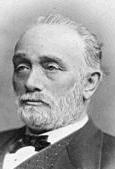
In 1855 Darmstadt, Hesse-born German philosopher Friedrich Karl Christian Ludwig Buchner (Büchner) (1824-99) pub. his magnum opus Kraft und Stoff: Empirisch-naturphilosophische Studien (Force and Matter: Empiricophilosophical Studies), which attempts to prove the indestructibility of matter and the finality of physical force; too bad, its extreme materialism pisses-off critics so much that he has to resign from his position at the U. of Tubingen, becoming a physician and founding the German Freethinkers League in Frankfurt in 1881.


The Book That Shook the World? Big year for Bible skeptics, secularists, atheistic scientists, anybody against the ancien regime, as Jehovah, the Source of Life Breathed Into Mud is challenged by Godless Evolution, Mud Coming to Life by Itself After It Bubbles Long Enough? The biggest V for the Devil since Eden? The new 95 Theses, but Darwin is smart enough not to publish it on Halloween? On Nov. 24, 1859 (Thur.) English naturalist Charles Robert Darwin (1809-82) pub. On the Origin of Species By Means of Natural Selection, Or, The Preservation of Favoured Races in the Struggle for Life; the 1st ed. sells out in 1 day; the 1872 6th ed. shortens the title to "The Origin of Species"; the decider, which causes evolutionary "survival of the fittest" theory to triumph among the intelligentsia; English Anglican minister and Cambridge U. prof. of modern history Charles Kingsley (1819-75), who received an advance copy on Nov. 18 writes that he had "long since, from watching the crossing of domesticated animals and plants, learnt to disbelieve the dogma of the permanence of the species", which Darwin adds to the next ed. of his book in a modified form: "He had gradually learned to see that it is just as noble a conception of the Deity to believe that He created a few original forms capable of self-development into other and needful forms, as to believe that He required a fresh act of creation to supply the voids caused by the action of His laws"; Darwin pub. it after spending eight years dissecting barnacles in his basement, then inexplicably switching to the Galapagos finch?; catches on first in Germany among atheists?; "If it could be demonstrated that any complex organ existed, which could not possibly have been formed by numerous, successive, slight modifications, my theory would absolutely break down"; Louis Agassiz of the U.S. opposes Darwin, preferring a theory of "Epochs of Creation", based on the absence of missing links between layers of well-formed fossil ecosystems; the phrase "I'll be a monkey's uncle" is coined by Darwin skeptics; "There is a grandeur in this view of life that, whilst this planet has gone cycling on according to the fixed law of gravity, from so simple a beginning endless forms most beautiful and most wonderful have been, and are being, evolved"; what was that about "my theory would absolutely break down" if anything is found that can't be explained by "numerous, successive, slight modifications"?; in practice Darwinism becomes a religion which denies that there is intelligent design in Nature, and therefore tries to deconstruct any evidence of it they find as they go along, yet clings to the notion of common descent, almost as if there was some original, er, accident, and ends up turning into a narrow naturalistic dogma by the end of the 20th cent., taking over U.S. and other Western educational systems with a chilling priesthood? In 1860 after failing to fit it into his Theory of Evolution, Darwin writes the immortal soundbyte: "The sight of a feather in a peacock's tail makes me sick." On Feb. 1, 1871 he writes a Letter to Sir Joseph Dalton Hooker, with the soundbyte: "It is often said that all the conditions for the first production of a living organism are now present, which could ever have been present. But if (and oh! what a big if!) we could conceive in some warm little pond, with all sorts of ammonia and phosphoric salts, light, heat, electricity, &c., present, that a protein compound was chemically formed ready to undergo still more complex changes, at the present day such matter would be instantly absorbed, which would not have been the case before living creatures were found." In 1871 he pub. The Descent of Man; "The Simidae then branched off into two great stems, the New World and the Old World monkeys; and from the latter at a remote period, Man, the wonder and glory of the universe, proceeded"; "We civilized men... do our utmost to check the process of elimination; we build asylums for the imbecile, the maimed, and the sick; we institute poor laws; and our medical men exert their utmost skill to save the life of everyone to the last moment... Thus the weak members of civilized societies propagate their kind. No one who has attended to the breeding of domestic animals will doubt that this must be highly injurious to the race of man. It is surprising how soon a want of care, or care wrongly directed, leads to the degeneration of a domestic race; but excepting in the case of man himself, hardly anyone is so ignorant as to allow his worst animals to breed"; "This is the book that contains the foundation in natural history for our view" (Marx to Engels); this book is later used by Eugenicists to justify euthanasia of misfits.

On May 14, 1867 Cambridge, Mass.-born philosopher-logician-scientist Charles Sanders Peirce (1839-1914) (pr. like purse) pub. On a New List of Categories, which founds Philosophical Pragmatism, which rejects the idea that the function of thought is to mirror reality, considering it to be a product of the interaction between the organism and environment, whose function is as an instrument or tool for prediction, action, and problem solving, hence most philosophical topics are best viewed in terms of their practical uses.

In 1865 Lutzen, Saxony, Prussia-born German theology student Friedrich Wilhelm Nietzsche (1844-1900 suddenly quits and gives up his faith, writing to his sister Elisabeth the soundbyte: "Hence the ways of men part: if you wish to strive for peace of soul and pleasure, then believe; if you wish to be a devotee of truth, then inquire", going on to study philology and philosophy and soon discovering atheist philosopher Arthur Schopenhauer's "The World as Will and Representation", Friedrich Albert Lange's "History of Materialism", and Charles Darwin's "The Origin of Species", getting an appointment as the youngest prof. of classical philology at the U. of Basel in 1869 at age 24, later reaching the pinnacle of philosophy and calling himself the Antichrist before becoming a partial invalid in 1874, turning into an opium addict, then collapsing in 1889 and becoming demented for the rest of his life. In 1872 Nietzsche pub. his first book The Birth of Tragedy from the Spirit of Music (Die Geburt der Tragedie aus dem Geiste der Musik);, which approvingly quotes Silenus: The very best thing is not to be born, not to be, to be nothing. The second best is to die soon"; claims that Greek culture is defined by the opposition of Apollonian and Dionysian tendencies, becoming the reason he grooves on Wagnerian music dramas? In 1882 he pub. The Joyful (Gay) Science (Die Frohliche Wissenschaft), which introduces the Death of God, Eternal Recurrence (Return), and the Ubermensch (Übermensch) (Superman) (Overman). In 1883-5 he pub. the novel Thus Spake Zarathustra: A Book for All and for None (Also Sprach Zarathustra), which expands on the ideas of the Eternal Recurrence, Death of God, the Ubermensch (Übermensch) (Superman), and the Will to Power, promoting the idea that one value system is no more worthy than the next, with the aphorism "On the Thousand and One Goals": "A thousand goals have there been so far, for there are a thousand peoples. Only the yoke for the thousand necks is still lacking: the one goal is lacking. H umanity still has no goal." In 1886 he pub. Beyond Good and Evil: Prelude to a Philosophy of the Future (Jenseits von Gut and Bose: Vorspiel einer Philosophie der Zukunft), which argues that the evil man isn't the opposite of the good man, but a different expression of the same basic impulses. In 1889 he pub. Twilight of the Gods (Idols); or, How to Philosophize with a Hammer (Gotzendammerung) (Götzendämmerung), which disses modern German culture as suffering from "cultural decadence", pointing to Caesar, Napoleon, Goethe, Thucydides, and the Sophists as the way to go, promoting the Transvaluation (Revaluation) of All Values, touting the ancient Romans as superior to the ancient Greeks. In 1895 he pub. The Antichrist, about how Christianity teaches a "slave morality", and holds back the yah-baby dream-is-back Superman along with his Will to Power (Der Wille zur Macht) (pub. posth. in 1901); "Not contentment, but more power; not peace at all, but war"; "Truth is ugly. We possess art lest we perish from truth"; "The real philosophers are commanders and lawgivers; they say: 'Thus shall it be!' They determine first the Whither and the Why of mankind, and thereby set aside the previous labor of all philosophical workers...; they grasp at the future with a creative hand, and whatever is and was, becomes for them thereby a means, an instrument, and a hammer. Their 'knowing' is creating, their creating is a lawgiving, their will to truth is Will to Power." On Jan. 3, 1889 so-called "Superman" German philosopher Friedrich Nietzsche (b. 1844) freaks at the flogging of a horse in the Piazza Carlo Alberto in Turin, Italy, and suffers a mental breakdown, moving in with his mother near Weimar, and is cared for by his sister until he crocks on Aug. 25, 1900 in Weimar, Saxony, leaving Ecce Homo: How One Becomes What One Is (pub. in 1908) (signed "Dionysus versus the Crucified").

In 1866 Coswig, Anhalt-born German Jewish neo-Kantian philosopher Hermann Cohen (1842-1918) pub. his first work Platonic Ideal theory Psychologically Developed, going on to found the Neo-Kantian schoool at the U. of Marburg in the late 1870s. In 1902 he pub. Logik der Reinen Erkenntnis, followed by Ethik des Reinen Willens (1904), and Asthetic des Reinen Gefuhis ( Ästhetik des reinen Gefühls) (1912), laying out his own systematic philosophy. In 1919 he pub. Religion of Reason from the Sources of Judaism (Religion der Vernunft aus den Quellen des Judentums), claiming that Judaism has a spiritual-moral mission that is no longer limited to history, opposing the nationalist aims of Zionism that would "return the Jews to history". He goes on to become "probably the most important Jewish philosopher of the nineteenth century." (Jewish Virtual Library)
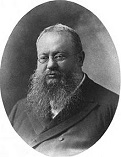
In 1871 Hartford, Conn.-born philosopher-historian John Fiske (1842-1901) (big believer in evolution) pub. The Progress from Brute to Man, folowed by Outlines of Cosmic Philosophy (3 vols.) (1874), which claims that "in reality there has never been any conflict between religion and science, nor is any reconciliation called for where harmony has always existed", adding: "We arrive at a deeper reason than has hitherto been disclosed for the difference between our position with reference to Christianity, and that which has been assumed by Radicalism and by Positivism. It is not merely that we refuse to attack Christianity because we recognize its necessary adaptation to a certain stage of culture, not yet passed by the average minds of the community; it is that we still regard Christianity as, in the deepest sense, our own religion"; The Unseen World and Other Essays (1876), Darwinism and Other Essays(1879) (rev. ed. pub. 1885), Excursions of an Evolutionist (1883), The Destiny of Man Viewed in the Light of His Origin (1884), The Idea of God as Affected by Modern Knowledge (1885), Origin of Evil (1899), and Through Nature to God (1899), denying any enmity between science and religion because God is immanent everywhere.
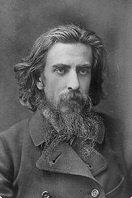
In 1874 Moscow-born Russian mystical philosopher Vladimir Sergeyevich Solovyov (1853-1900 pub. The Crisis of Western Philosophy: Against the Positivists, dissing positivism and Western rationalism as setting up a conflict between reason and faith and reason and Nature, praising Arthur Schopenhauder and Eduard von Hartmann and claiming a third way between pure empiricism and pure rationalism that acknowledges an all-one concrete spirit as the absolute principle, founding modern Russian religious philosophy; "No preceding stage of philosophy can be ignored. Every preceding stage is one-sided and will find its appropriate place only when we are emancipated from Western philosophy in its entirety and surrender ourselves to the authority of faith" (Alexei Losev). He follows with The Philosophical Principles of Integral Knowledge (1877), The Critique of Abstract Principles) (1877-80), and Lectures on Divine Humanity (1877-91). In 1888 he pub. The Russian Idea, containing the soundbyte: "The idea of a nation is not what it thinks of itself in time, but instead what God thinks of it in eternity." In 1900 he pub. the novel A Story of Anti-Christ, about the conquest of Asia and Europe by Japan and the rise of the you know what. He leaves The Justification of the Good: An Essay on Moral Philosophy (1918), his magnum opus.
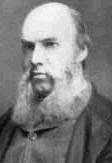
On Apr. 19, 1880 the Aristotelian Society for the Systematic Study of Philosophy is founded at 17 Bloomsbury Square in London, England; pres. #1 (1880-94) is Shadworth Hollway Hodgson (1832-1912); pres. #2 (1894-8) is Bernard Bosanquet; pres. #3 (1898-9) is G.F. Stout; pres. #4 (1899-1904) is G.F. Stout; pres. #5 (1904-7) is Hastings Rashdall (1858-1924); pres. #8 (1911-13) is Bertrand Russell. In 1898 Hodgson pub. The Metaphysic of Experience (4 vols.), which disses empiricism for postulating persons and things, claiming that neither subject nor object are warranted as initial considerations of philosophy, foreshadowing New Realism.
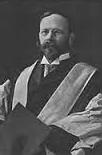
In 1891 German-born British philosopher F.C.S. (Ferdinand Canning Scott) Schiller (1864-1937) anon pub. Riddles of the Sphinx: A Study in the Philosophy of Evolution (2nd ed. pub. in 1894 with his name), which attempts to bridge naturalism and metaphysics, accusing the former of ignoring the fact that the latter is required to justify our natural description of the world, and accusing the latter of losing sight of the world we actually live in to construct grand imaginary worlds, making naturalism unable to explain consciousness and freewill, and metaphysics unable to explain the imperfect changing physical world; the rev. ed. (1910) attempts to reconcile his views to William James' pragmatism. Too bad, after becoming a popular prof. at the U. of Southern Calif., his work is soon forgotten after his death. "One curious result of this inertia, which deserves to rank among the fundamental 'laws' of nature, is that when a discovery has finally won tardy recognition it is usually found to have been anticipated, often with cogent reasons and in great detail"; "The interminable controversies which fill the histories of philosophy could have been ended at once by asking the living philosophers a few searching questions."

In 1900-1 Prossnitz, Moravia, Austria-born German philosopher (assimilated Jew) Edmund Gustav Albrecht Husserl (1859-1938) pub. Logical Investigations (2 vols.) (2nd ed. in 1913, 1921), founding Philosophical Phenomenology, the philosophical study of the structures of experience and consciousness, dissing psychologism, the doctrine that logical entities incl. numbers, propositions, and universals can be reduced to mental states or activities, which becomes a major part of 20th cent. Continental Philosophy. In 1936 after being chased out of Nazi Germany, he pub. his unfinished magnum opus The Crisis of European Sciences and Transcendental Phenomenology: An Introduction to Phenomenological Philosophy, which claims that the sciences can be given meaning only if they are founded on phenomenology, and that the rise of barbarism incl. Nazi Germany is based on a misunderstanding of human reason, which can be corrected with the idea of the Lebenswelt (Lifeworld).



In 1905 Monmouthshire, England-born philosopher-logician Bertrand Arthur William Russell (1872-1970) pub. On Denoting in Mind, which introduces definite and indefinite descriptions, and formulates descriptivism for proper names, reducing them to disguised and abbreviated definite descriptions, causing Frank P. Ramsey to call it "that paradigm of philosophy", and Peter Ludlow to call it "the paradigm of philosophy". In 1910-13 he and Ramsgate, Kent-born philosopher-mathematician Alfred North Whitehead (1861-1947) pub. Principia Mathematica (3 vols.), which attempts to reduce arithmetic to logic, founding the calculus of propositions and modern symbolic logic, becoming king locomotive of the county until Godel's Theorem derails them? In 1912 Russell pub. The Problems of Philosophy. In 1914 he pub. Our Knowledge of the External World as a Field for Scientific Method in Philosophy. In 1927 he pub. Why I Am Not a Christian, dooming Britain to mass apostasy by the end of the cent.? In 1945 he pub. A History of Western Philosophy and Its Connection with Political and Social Circumstances from Earliest Times to the Present Day, which becomes a big hit, fixing him financially for life and helping him win the 1950 Nobel Lit. Prize despite being dissed by several historians, who accuse of him of rushing it to press to make money; "A precious book... a work that is in the highest degree pedagogical which stands above the conflicts of parties and opinions" (Albert Einstein); "[It] confers on philosophers who are dead and gone a kind of false contemporaneity which may make them seem important to the uninitiate. But nevertheless it is a misreading of history" (George Boas); "I regarded the early part of my History of Western Philosophy as a history of culture, but in the later parts, where science becomes important, it is more difficult to fit into this framework. I did my best, but I am not at all sure that I succeeded. I was sometimes accused by reviewers of writing not a true history but a biased account of the events that I arbitrarily chose to write of. But to my mind, a man without bias cannot write interesting history - if, indeed, such a man exists." (Russell) In 1948 he pub. Human Knowledge: Its Scope and Limits; "Language is a means of externalizing and publicizing our own experiences. A dog cannot relate his autobiography; however eloquently he may bark, he cannot tell you that his parents were honest but poor." He goes on to found Analytic Philosophy, which emphasizes modern formal logic and rejects grand sweeping philosophical systems in favor of well-analyzed bits and pieces. One day Beatle Paul McCartney visits him at his flat in London, and is lectured on anti-war activism, the news causing fellow Beatle John Lennon to get into it? On Feb. 2, 1972 pipe-smoking Russell (b. 1872) dies in Plas Penrhyn, Penrhyndeudraeth, Wales of influenza after pub. 50+ books and winning the 1950 Nobel Lit. Prize; "It is undesirable to believe a proposition when there is no ground whatever for supposing it true"; "Men are born ignorant, not stupid. They are made stupid by education"; "Advocates of capitalism are very apt to appeal to the sacred principles of liberty, which are embodied in one maxim: The fortunate must not be restrained in the exercise of tyranny over the unfortunate"; "A process which led from the amoeba to man appeared to the philosophers to be obviously a progress though whether the amoeba would agree with this opinion is not known"; "War doesn't determine who's right, only who's left"; "If fifty million people say a foolish thing, it is still a foolish thing"; "Three passions, simple but overwhelmingly strong, have governed my life: The longing for love, the search for knowledge, and unbearable pity for the suffering of mankind"; "The time you enjoy wasting is not wasted time"; "On the one hand, philosophy is to keep us thinking about things that we may come to know, and on the other hand to keep us modestly aware of how much that seems like knowledge isn't knowledge"; "Religion is something left over from the infancy of our intelligence. It will fade away as we adopt reason and science as our guidelines"; "I resolved from the beginning of my quest that I would not be misled by sentiment and desire into beliefs for which there was no good evidence"; "Unless you assume a God, the question of life's purpose is meaningless"; "Many people would sooner die than think; in fact, they do so"; "If a man is offered a fact which goes against his instincts, he will scrutinize it closely, and unless the evidence is overwhelming, he will refuse to believe it. If, on the other hand, he is offered something which affords a reason for acting in accordance to his instinct, he will accept it even on the slightest evidence. The origin of myths is explained in this way"; "Liberty is the right to do what I like; license, the right to do what you like"; "The secret to happiness is to face the fact that the world is horrible"; "To understand the actual world as it is, not as we should wish it to be, is the beginning of wisdom"; "There is something feeble and a little contemptible about a man who cannot face the perils of life without the help of comfortable myths"; "A happy life must be to a great extent a quiet life, for it is only in an atmosphere of quiet that true joy dare live"; "To fear love is to fear life, and those who fear life are already three parts dead"; "The whole problem with the world is that fools and fanatics are always so certain of themselves and wiser people so full of doubts"; "It is not what the man of science believes that distinguishes him, but how and why he believes it. His beliefs are tentative, not dogmatic; they are based on evidence, not on authority or intuition"; "Man is the product of causes which had no prevision of the end they were achieving... his origin, growth, hopes and fears, his loves and beliefs, are but the outcome of accidental collocations of atoms... no fire, heroism, intensity of thought and feeling can preserve an individual life beyond the grave. All the labours of the ages, the devotion, the inspiration, the noonday brightness of human genius, are destined to extinction in the vast death of our solar system, and the temple of man's achievement must inevitably be buried beneath the debris of a universe in ruins."

In 1907 Wiesbaden-Biebrich-born German historian-psychologist-sociologist-philosopher Wilhelm Dilthey (1833-1911) (who holds Hegel's chair in philosophy at the U. of Berlin) pub. The Essence of Philosophy (Das Wesen der Philosophie), which expounds his Romantic hermeneutics that considers understanding as the key for the human sciences (human expression of life) in contrast with the natural sciences (Nature), influencing Existentialism and making fans of Martin Buber and Martin Heidegger; he attempts to define philosophy through history with the three basic Weltanschauungs (popularizing the term), incl. Naturalism, which sees man as determined by Nature, Subjective Idealism, in which man is conscious of his separation from Nature by his freewill, and Objective Idealism, in which man is conscious of his harmony with Nature, picturing a spectacle of philosophies passing through history, rising and falling, and covering the Earth like vegetation, causing the philosopher to have to classify them "as the botanist classifies plants"; as a balance, the "formative laws of the mind" and the "structure of inner life" AKA structure psychology and the "ever constant structure of life", i.e. psychology is expected to provide a firm foundation for all human studies one day.
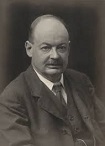
In 1908 Cambridge U. Hegelian idealist philosopher J.M.E. (John McTaggart Ellis) McTaggart (1866-1925) pub. The Unreality of Time, which deconstructs all the known descriptions of time, becoming a hit with philosophers.
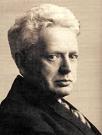
In 1910 Breslau, Silesia, Prussia-born German Jewish philosopher Ernst Cassirer (1874-1945) (cousin of publisher Bruno Cassirer, art collector Paul Cassirer, and Gestalt psychologist Kurt Goldstein, and student of Hermann Cohen) pub. his first work Substance and Function, which covers late 19th-cent. developments in physics incl. the foundations of mathematics and Relativity Theory, followed by Kant's Life and Thought (1918) (English trans. 1981), The Problem of Knowledge: Philosophy, Science, and History Since Hegel (1919) (English trans. 1950), and Einstein's Theory of Relativity (1921) (English trans. 1923), which object to positivism, claiming that despite what they say, modern physics supports a neo-Kantian conception of science as an expression of the creativity of human reason, becoming the last philosopher to attempt to straddle the "two cultures" (C.P. Snow) of the exact sciences vs. the arts and humanities. In 1919 he gets a job at the new U. of Hamburg, joining the circle of Aby Warburg. In 1923 he begins pub. The Philosophy of Symbolic Forms (4 vols.) (1923-9) (English trans. 1953-7), based on the Warburg Library in Hamburg, which argues that man is a "symbolic animal", making even irrationalism an integral part of human civilization, with the soundbyte: "Reason is a very inadequate term with which to comprehend the forms of man's cultural life in all their richess and variety. But all these forms are symbolic forms. Hence, instead of defining man as an animal rationale, we should define him as an animal symbolicum." He follows with Language and Myth (1925) (English trans. 1946), which claims an unconscious "grammar" of experience beneath language and myth, an archaic mode of thought that still controls us, with examples incl. ancient Egyptian religion, the Bhagavat Gita, the Melanesian concept of Mana, Schelling's Naturphilosophie, symbolic logic, and modern poetry. He follows with The Individual and the Cosmos in Renaissance Philosophy (1927) (English trans. 1963), which shows how the Renaissance spirit undermined medieval thought, and sees the scientific rev. as a "Platonic" application of math to nature. In Aug. 1928 he goes political, supporting the Weimar Repub., with the soundbyte: "The idea of the republican constitution as such is in no sense a stranger to... German intellectual history, let alone an alien intruder... It has rather grown up on its own soil and been nourished by its very own forces, by the forces of idealist philosophy." On Apr. 23, 1929 a great debate is held in Davos, Switzerland between German philosophers Ernst Cassirer (1874-1945) (Jewish) and Martin Heidegger (1889-1976) (non-Jewish) over the meaning of Kant's "Critique of Pure Reason", with Cassirer opposing Heidegger's relativism with Kant's view of the universal validity of truths discovered by the exact and moral sciences. Cassirer follows with Philosophy of the Enlightenment (1932) (English trans. 1951), which claims that reason's self-realization leads to human liberation, glossing over the social-political context that produced the ideas. Too bad, he loses the battle to positivism and Naziism, and he has to flee in 1933, teaching at All Souls College at Oxford U. for two years, Gothenburg U. in Sweden for six, and four more at Yale U. and Columbia U. before dying of a heart attack on Apr. 13, 1945. He leaves Determinism and Indeterminism in Modern Physics: Historical and Systematic Studies of the Problem of Causality (1936) (English trans. 1956), about quantum mechanics, The Logic of the Cultural Sciences (1942) (English trans. 1961, 2000), arguing that the objective and universal validity of the sciences can be extended to the cultural sciences (making him the last philosopher of culture?), and An Essay on Man: An Introduction to a Philosophy of Human Culture (1944). He posth. pub. The Myth of the State (1946), an attempt at understanding the intellectual origins of Nazi Germany, blaming Martin Heidegegger for allowing Germany to be captured by an irrational belief in destiny after departing from Edmund Husserl's objective, logical philosophy. In 1981 he posth. pub. Symbol, Myth, and Culture: Essays and Lectures of Ernst Cassirer, 1935-45 (ed. Donald Phillip Verene).
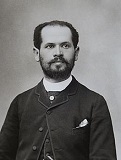
In 1910 French journalist Paul Desjardins (1859-1940) begins holding his annual 10-day Decades of Pontigny for the intellectual elite of Europe incl. Simone de Beauvoir, Nikolai Berdyaev, T.S. Eliot, Heinrich Mann, Thomas Mann, Jean-Paul Sartre, and Antoine de Saint-Exuperty (ends 1914); in 1922-39 he reinstitutes them as a conference on the future of Europe, with guests incl. Charles du Bos, Andre Gide, Roger Martin du Gard, Paul Langevin, Francois Mauriac, Jacques Riviere, Alice Voinescu et al.

In 1916 Cartmel Fell, Lancashire-born English philosopher-historian-archeologist R.G. (Robin George) Collingwood (1889-1943) pub. Religion and Philosophy, followed by Roman Britain (2nd ed. 1932), describing his work along Hadrian's Wall, claiming that it's an elevated sentry walk more than a fighting platform, claiming it was supported by a number of forts along the Cumberland coast, Speculum Mentus; or, The Map of Knowledge (1924), Outlines of a Philosophy of Art (1925), The Archaeology of Roman Britain (1930), An Essay on Philosophic Method (1933), Roman Britain and the English Settlements (w/John Nowell Linton Myres) (1936) (2nd ed. 1937), describing his excavation of King Arthur's Henge, a circular ditch near Penrith in Cumbria, which becomes vol. 1 of the Oxford History of England. He follows with The Principles of Art (1938), which claims that artworks are essentially expressions of emotion, portraying art as a necessary function of the human mind, which is a collaborative activity, going on to defend liberalism "in its Continental sense" as "the idea of a community as governing itself by fostering the free expression of all political opinions that take shape within it, and finding some means of reducing this multiplicity of opinions to a unity", An Autobiography (1939), An Essay on Metaphysics (1940), which proposes the doctrine of absolute presuppositions, expounds hist logic of question and answer, and gives an original account of causation, and The New Leviathan; or, Man, Society, Civilization, and Barbarism (1942), his last book, which he decided to write instead of finishing his life's work on the philosophy of history, dissing Nazism ans Fascism as the work of the non-social community in the body politic, attempting to establish the connections between barbarism, civilization, society, and consciousness, rejecting relativism. He posth. pub. The Idea of Nature (1945) (ed. T.M. Knox), which claims that history is a recollection of the thinking of an historical personage, concluding that two people can have the same thought and not just the same content, making him "the best known neglected thinker of our time" (Louis O. Mink) after it becomes extensively cited, The Idea of History (1946), Essays in the Philosophy of Art (1964), and Essays in the Philosophy of History (1965). In 1965 his pupil R.P. Wright pub. Roman Inscriptions in Britian (3 vols.), based the work of Francis J. Haverfield supplemented by his drawings of almost 900 inscriptions he made all over Britain, containing a total of 2,401 monumental inscriptions found before 1955.

In 1922 Vienna, Austria-born wealthy assimilated Jew (Roman Catholic) Ludwig Josef Johann Wittgenstein (1889-1951) pub. his only work Tractatus Logico-Philosophicus, a model of clarity, only 75 pages long; "The sum-total of reality is the world". In 1929 he moves to Cambridge U. in England. In 1953 he posth. pub. Philosophical Investigations, which abandons his 1922 work "Tractatus Logic-Philosophicus", arguing that conceptual confusions surrounding language are at the root of most philosophical problems, incl. the concept of mental states unconnected to the environment, with the soundbyte: "An 'inner process' stands in need of outward criteria." "The most perfect example I have ever known of genius as traditionally conceived; passionate, profound, intense, and dominating" (Bertrand Russell). "The human body is the best picture of the human soul."

In 1923 Vienna, Austria-born Jewish existentialist philosopher Martin (Mordechai) Buber (1878-1965) (relative of Karl Marx) pub. I and Thou (Ich und Du); tr. into English in 1937; the Jewish conception of God as "Thou" not "It" sans the Catholic Trinity and that you-know-what from Nazareth?; "One who truly meets the world goes out also to God."
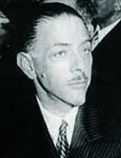
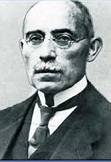
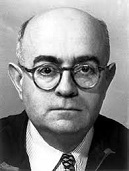
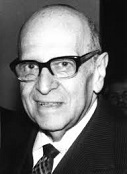
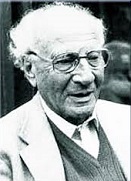

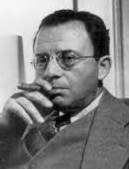
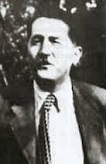
In 1923 after financing the Erste Marxistiche Arbeitswoche (First Marxist Work Week) in Ilmenau, Germany, wealthy Marxist Felix Jose Weil (1898-1975) et al. found the Inst. for Social Research in Frankfurt am Main, Germany as an adjunct of the the U. of Frankfurt, becoming the first Marxist-oriented research center affiliated with a major German U., later becoming known as the Frankfurt School; it was inspired by German philosopher Carl Gruenberg (Grünberg) (1861-1940); members (mostly Jews) incl. Theodor W. Adorno (Theodor Ludwig Wiesengrund) (1903-69), Max Horkheimer (1895-1973), Leo Loewenthal (Leo Löwenthal) (1900-93), Herbert Marcuse (1898-1979), and Friedrich Pollock (1894-1970); meanwhile in 1923 Hungarian Marxist philosopher Gyorgy Lukacs (1885-1971) pub. History and Class Consciousness, and German Marxist philosopher Karl Korsch (1886-1961) pub. Marxism and Philosophy, launching Western Marxism, which downgrades economic analysis in favor of the abstract and philosophical areas of Marxism, emphasizing the study of culture, concentrating on building a superstructure; Adorno later engages in a series of debates with Karl Popper.

In 1924 Munich-born German philosopher Max Ferdinand Scheler (1874-1928) pub. Man and History, founding Philosophical Anthropology, differing with Aristotle's mind-body "rational animal" distinction by claiming that a human has a tripartite structure of body, soul, and spirit, with love and hatred not psychological emotions but intentional spiritual acts, which he calls "intentional feelings", allowing him to base his philosophical anthropology in a Christian metaphysics of the spirit, claiming that man is born with a tabula rasa vis a vis the ideas of religion, philosophy, and science, and that even if one rejects God like Nietzsche, the ubiquitousness of the concept makes it still necessary to study and deconstuct the basic concepts to build a philosophically foundational science of man, which whole idea is rejected by Martin Heidegger et al.; too bad, he dies before he can pub. his magnum opus showing how philosophical anthropology will address the totality of man while staying informed of all the sciences incl. biology, psychology, and sociology; in 1954 Karol Wojtyla (future Pope John Paul II) pub. his doctorial thesis "An Evaluation of the Possibility of Constructing a Christian Ethics on the Basis of the System of Max Scheler".



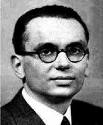
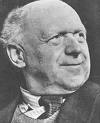



In 1924 the Vienna Circle is founded (until 1936) in Austria by physics-trained Austrian philosopher Moritz Schlick (1882-1936), along with a bunch of other Jewish philosophers and scientists incl. Rudolf Carnap (1891-1970), Kurt Friedrich Godel (Gödel) (1906-78), Otto Neurath (1882-1945), Hans Hahn (1879-1934), Herbert Feigl (1902-88), Friedrich Waisman (1896-1959) et al. to discuss metaphysics-free Logical Positivism and the exciting new Tractatus Logico-Philosophicus of Ludwig Wittgenstein, and when the latter interacts with them he ends up writing his exciting new Philosophical Investigations; too bad, the rise of the Nazis shuts them down - they gave up the Hebrew Scriptures but are still in love with the truth in words?

In 1927 Baden, Germany-born existentialist philosopher Martin Heidegger (1889-1976) pub. Being and Time (Sein und Zeit), dedicated to Edmund Husserl, and written to "reawaken the question of the meaning of Being"; attempts to understand being itself as distinguished from specific beings and the sense of being (Sinn des Seins), concluding that the being for whom Being is a question is not a what but a who, Dasein (being-there).
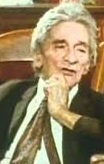


In 1929 French Jewish existential philosopher Jean Andre Wahl (1888-1974) pub. Le Malheur de la conscience dans la philosophie de Hegel, becoming the first to introduce Hegelian thought in France. In 1938 he pub. Études kierkegaardiennes (Kierkegaardian Studies), introducing Soren Kirkegaard to French intellectuals. In 1942 he escapes from Drancy concentration camp NE of Paris and lands in the U.S. until 1945, founding the École libre des hautes études university in exile at the New School for Social Research in New York City, which he relocates after the war to Paris; meanwhile he sets up the Decades de Mount Holyoke on Mount Holyoke, modeled after the Decades of Pontigny of Paul Desjardin, annual 10-day conferences on the Am. English language, with invitees incl. Marianne Moore, Roger Sessions, and Wallace Stevens; in 1946 he founds the Collège philosophique in the Latin Quarter of Paris for non-conformist intellectuals as an alternative to the Sorbonne, which on Mar. 4, 1963 hosts the lecture "Cogito and the History of Madness" by Jacques Derrida, criticizing Michel Foucault, which causes him to pub. The Order of Things: An Archeology of the Human Sciences (Les Mots et les Choses: Une Archeologie des Sciences); original title "L'Ordre des Choses"; trans. into English in 1970; makes him a star in France; claims that all periods of history possess certain underlying epistemological assumptions for what is acceptable, which he calls episteme (Gr. "knowledge"), a sharp break between historical periods caused by the abandonment of one intellectual framework for another, although all human sciences have their roots in "life, labor, and language", i.e., biology, economics, and linguistics. "However, if in any given culture and at any given moment, there is always only one episteme that defines the conditions of possibility of all knowledge, whether expressed in a theory or silently invested in a practice"; claims that Euro culture can be divided into Late Renaissance (1500s), Classical Era (mid-1600s to late 1700s), and Modern Era (early 1800s to present); he follows with The Archaeology of Knowledge (1969).

In 1934 Vienna, Austria-born philosopher (assimilated Jew) Sir Karl Raimund Popper (1902-94) pub. The Logic of Scientific Discovery (Logik der Forschung) (English trans. 1959), arguing that the best methodology for science is based on falsifiability, with potential falsifiability being the demarcation between science and non-science, founding the Philosophy of Science. In 1945 after settling in London he pub. The Open Society and Its Enemies (2 vols.), which disses the teleological historicism of Plato, Hegel, and Marx as tending toward totalitarianism, promoting Athenian-style liberal democracy as the way to go, making a fan of George Soros; "Unlimited tolerance must lead to the disappearance of tolerance. If we extend unlimited tolerance even to those who are intolerant, if we are not prepared to defend a tolerant society against the onslaught of the intolerant, then the tolerant will be destroyed, and tolerance with them."
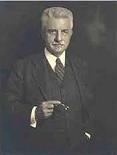
In 1936 Berlin, Germany-born Am. philosopher-historian Arthur Oncken Lovejoy (1873-1962), founder of the History of Ideas Club at John Hopkins U. pub. Primitivism and Related Ideas in Antiquity (w/George Boas), followed by The Great Chain of Being: A Study in the History of an Idea (1936), discussing Plato's concept (plentitude, continuity, and gradation) and its evolution until it became kaput in the 19th cent., becoming a hit and founding the discipline of the History of Ideas; "Next to the word 'Nature', the 'Great Chain of Being' was the sacred phrase of the eighteenth century, playing a part somewhat analogous to that of the blessed word 'evolution' in the late nineteenth." In 1940 he founds the Journal of the History of Ideas, focusing on "unit ideas" that combine and recombine over time. In 1948 he pub. Essays in the History of Ideas, followed by The Revolt Against Dualism (1960), a critique of New Realism, The Reason, the Understanding, and Time (1961), Reflections on Human Nature (1961), and The Thirteen Pragmatisms and Other Essays (1963) (posth.), criticizing the Pragmatists.

In 1938 Paris-born French existentialist atheist Marxist philosopher (blind in right eye) Jean-Paul Charles Aymard Sartre (1905-80) pub. the novel Nausea, a manifesto of existentialism, about dejected researcher Roquentin, living in a town similar to Le Havre, who discovers that inanimate objects and situations are absolutely indifferent to his existence, while everyday life is infused with the horrible taste of his own freedom, causing him to be "condemned to be free"; gets him the 1964 Nobel Lit. Prize, which he declines. In 1943 he pub. Being and Nothingness: An Essay on Phenomenological Ontology (A Phenomenological Essay on Ontology) (L'Être et le Néant), his response to Martin Heidegger's 1927 "Being and Time", claiming that since there is no creator, man's existence is prior to his essence, causing him to be haunted by a vision of "completion" (a being that causes itself) (ens causa sui), which is mistaken for God, and which he tries to satisfy with his free will. In 1957 he pub. Search for a Method (The Problem of Method), which attempts to reconcile existentialism with Marxism.
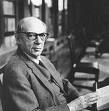
In 1939 after being born in Riga, Latvia, witnessing the St. Petersburg revs. in 1917, emigrating to the West in 1921, and turning down a philosophy fellowship to study history, British Jewish historian-philosopher ("Sir Sagacity") Sir Isaiah Berlin (1909-97) pub. Karl Marx: His Life and Environment, claiming that Marx's system depends upon indefensible metaphysical presuppositions, launching his career as the #1 historian of ideas, "the dominant scholar of his generation", championing freedom and diversity against control and uniformity, becoming known for his deep rapid speaking voice, founding Wolfson College at Oxford U. In 1945 he returns to Russia in 1945 and meets Boris Pasternak and Anna Akhmatova. In 1953 he pub. The Hedgehog and the Fox: An Essay on Tolstoy's View of History (1953) (2nd ed. 2014), a study of Tolstoy's view of history as embodied in his "War and Peace", based on the statement by ancient Greek poet Archilochus: "The Fox knows many things, but the hedgehog knows one big thing", viewing thinkers as either hedgehogs (Plato, Lucretius, Dante, Pascal, Hegel, Dostoevsky, Nietzsche, Ibsen, Proust, Braudel) or foxes (Herodotus, Aristotle, Erasmus, Shakespeare, Montaigne, Moliere, Goethe, Pushkin, Balzac, Joyce, Anderson) or a combo (Tolstoy) - those who have one big idea and many smaller ones are lions? Those with no ideas are sheep? Humanity can be divided into those who like laptops and those who like desktops? In 1956 he pub. The Age of Enlightenment: The Eighteenth-Century Philosophers. In 1959 he pub. Two Concepts of Liberty; Sir Isaiah Berlin (1909-97), Two Concepts of Liberty; negative (sans state interference) vs. positive liberty (state-regulated). In 1978 he pub. Russian Thinkers (w/Aileen Kelly), followed by Against the Current Essays in the History of Ideas (1979), and Personal Impressions (1980) (2nd ed. 1998), his impressions of 17 celebs incl. Winston Churchill, FDR, Boris Pasternak, Anna Akhmatova, and Albert Einstein, with an intro. by Sir Noel Annan, incl. "Nobody in our time has invested ideas with such personality, given them a corporeal shape and breathed life into them more than Isaiah Berlin; and he succeeds in doing so because ideas for him are not mere abstractions. They live... in the minds of men and women, inspiring them, shaping their lives, influencing their actions and changing the course of history." In 1990 he pub. The Crooked Timber of Humanity: Chapters in the History of Ideas, based on Immanuel Kant's line: "Out of the crooked timber of humanity no straight thing was ever made", followed by The Sense of Reality: Studies in Ideas and their History (1996), On Political Judgment (1996), rejecting any ideology that fails to acknowledge plurality and variety of human experience, while disputing that there can be a political science, with the soundbyte: "Obviously what matters is to understand a particular situation in its full uniqueness, the particular men and events and dangers, the particular hopes and fears which are actively at work in a particular place at a particular time." He follows with Three Critics of the Enlightenment: Vico, Hamann, Herder (2000) (posth.), The Soviet Mind: Russian Culture under Communism (2004) (posth.), and Political Ideas in the Romantic Age: Their Rise and Influence on Modern Thought (2006) (posth.). Stores most of his writings in the basement of Headington House, his elegant Queen Anne residence in Oxford, and his lectures often went unpublished, while his essays were scattered in so many magazines and journals that his body of work was inaccessible to most people until his grad student Henry Hardy collects and pub. 5 vols. of it; "Like Our Lord and Socrates he does not publish much, he thinks and says a great deal and has had an enormous influence on our times." (Maurice Bowra)
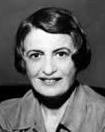
In 1943 after fleeing the Commie Rev. and emigrating to the U.S. in 1926, St. Petersburg, Russia-born Jewish-Am. atheist political philosopher Ayn Rand (Alisa Zinovyevna Rosenbaum) (1905-82) pub. the novel The Fountainhead, which introduces her philosophy of Objectivism, "The concept of man as a heroic being, with his own happiness as the moral purpose of his life, with productive achievement as his noblest activity, and reason as his only absolute." In 1957 she pub. the novel (her magnum opus) Atlas Shrugged, "the role of the mind in man's existence - and, as a corollary, the demonstration of a new moral philosophy: the morality of rational self-interest", which boosts her fan base incl. Alan Greenspan, helping her to turn Objectivism into a movement. After she dies of heart failure in New York City on Mar. 6, 1982, a 6-ft. floral arrangement in the shape of a dollar sign is displayed near her casket. "Civilization is the progress toward a society of privacy"; "The root of production is man's mind; the mind is an attribute of the individual and it does not work under orders, controls and compulsion, as centuries of stagnation have demonstrated. Progress cannot be planned by government, and it cannot be restricted or retarded; it can only be stopped, as every statist government has demonstrated."

In 1946 Budapest-born Hungarian-British polymath Michael Polanyi (1891-1976) pub. Science, Faith and Society, criticizing the positivist account of science because it ignores the role that personal committments play in its practice. In 1958 he pub. Personal Knowledge, claiming that all knowledge claims rely on personal judgments, denying that a scientific method can yield truth mechanically, advocating a fudiciary post-critical approach that recognizes that we believe more than we can prove and know more than we can say, proposing the "structure of tacit knowing", which he propounds in The Tacit Dimension (1966). In 1968 he pub. Life's Irreducible Structure, claiming that the info. contained in DNA is not reducible to the laws of physics and chemistry. In 1970 he pub. Transcendence and Self-Transcendence, which criticizes the Galilean mechanistic worldview, arguing for emergence, i.e., several levels of reality and causality, claiming that reductionism leads to moral inversion, the worse example being Marxism.

In 1951 Bronx, N.Y.-born social-moral philosopher Eric Hoffer (1898-1983) pub. his first book The True Believer: Thoughts on the Nature of Mass Movements, which analyzes the psychological causes of fantatacism, making him a working class Am. star. He follows with The Passionate State of Mind and Other Aphorisms (1954), The Ordeal of Change (1963); "It is easier to love humanity as a whole than to love one's neighbor"; The Temper of Our Time (1967); "It is not actual intellectual superiority which makes the intellectual but the feeling of belonging to an intellectual elite"; Before the Sabbath (1979) (last work); "Only superior people like Chinese and Jews can make Communism work." On May 26, 1968 Hoffer pub. Israel's Peculiar Position in the Los Angeles Times, with the soundbyte: "I have a premonition that will not leave me; as it goes with Israel, so it will go with all of us. Should Israel perish, the holocaust will be upon us."

In 1955 French Jesuit philosopher Pierre Teilhard de Chardin (1881-1955) posth. pub. The Phenomenon of Man (Le Phenomene Humain), which was written in 1938, but withheld from pub. so he wouldn't have to leave the priesthood; it explains his concepts of the Omega Point (mental Second Coming) and the Law of Complexity/Consciousness; coins the term "Noosphere" (the biosphere of the mind); "Just as man, in the eyes of the paleontologist, merges anatomically into the mass of mammals who preceded him, so the cell, in the same descending series... merges into the world of chemical structure and visibly converges towards the molecule" - and the whole Universe merges into a marble that blew up? "Someday after mastering winds, waves, tides and gravity, we shall harness the energies of love, and then, for the second time in the history of the world, man will discover fire"; "Teilhard was one of the first scientists to realize that the human and the universe are inseparable. The only universe we know about is a universe that brought forth the human." (Brian Swimme)
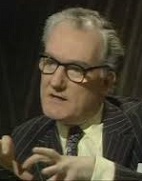
In 1958 NYU prof. William Christopher Barrett (1913-92) pub. Irrational Man: A Study in Existential Philosophy, which becomes a big hit, introducing Existentialism to the English-speaking world; dissed by critics for endorsing irrationality and distorting the works of Georg Wilhelm Friedrich Hegel.

On May 7, 1959 English physical chemist-novelist C.P. (Charles Percy) Snow, Baron Snow (1905-80) gives the speech The Two Cultures and the Scientific Revolution in the Senate House at Cambridge U., which claims that literary intellectuals and scientists don't understand or trust each other, and that there is an impassable gulf based on the problem that "the scientific mind was progressive and the literary mind was reactionary" - is there a way to reunite them with a 21st cent. historyscoping education, or did I get ahead of myself?





In the 1960s French intellectuals begin ditching Existentialism for Structuralism, founded by Swiss linguist Ferdinand de Saussure (1857-1913), who uses the science of signs to claim that human consciousness is dependent on objective rational structures mirrored in the laws of language syntax, and embraced by anthropologist Claude Levi-Strauss (1908-2009) and lit. critic Roland Barthes (1915-80); too bad, after the near rev. of 1968, Post-Structuralism and Deconstructionism, developed by Jacques Derrida (1930-2004) and Paul-Michel Foucault (1926-84) picks Structuralism apart and brings back good ole 20th cent. relativism.

In 1963 Kiwi-born Australian political philosopher Kenneth Robert Minogue (1930-2013) pub. The Liberal Mind: The Psychological Causes of Political Madness, about the modern crisis of the term liberal being coopted by the radical left when real liberalism is based on the tradition of thinkers incl. Adam Smith, Benjamin Constant, Adam Ferguson, Alexis de Tocqueville, John Stuart Mill et al., who built the foundation for a conservative perspective that defends civility, decency, and moderation, along with an honest transparent public sphere where people can freely pursue happiness.

In 1967 Algerian-born French Sephardic Jewish philosopher Jacques (Jackie Élie) Derrida (1930-2004) pub. Of Grammatology, containing the soundbyte: "There is no outside-text" ("There is nothing outside the text"), founding Philosophical Deconstructionism, which claims that all Western lit. and philosophy implicitly relies on a metaphysics of presence where intrinsic meaning is accessible by virtue of pure presence, denying the possibility of essential, intrinsic, or stable meaning, making absolute truth unattainable; "From the moment that there is meaning there are nothing but signs. We think only in signs"; neither speech nor writing but the combo?; his undeconstructible rep is made?

In 1967 Vienna, Austria-born Am. philosopher Paul Edwards (1923-2004) (ed.) pub. Encyclopedia of Philosophy (8 vols.) (Macmillan), packing it with agnostic and humanist articles, even one on Wilhelm Reich. In 1995 he pub. the Alzheimer's Argument Against the Soul, which claims that diseases like Alzheimer's and dementia prove that the soul doesn't exist; critics cite terminal lucidity to prove it does.
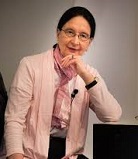
In 1974 Oxford-educated English philosopher Susan Haack (1945-) pub. her first book Deviant Logic, launching her career in philosophical logic, starting out with deviant logics incl. trivalent, arguing that validity is an inherently vague idea and that different logical systems make it precise in different equally legitimate ways. In 1978 she pub. Philosophy of Logics, becoming the first systematic exposition of all the central tropics in the philosophy of logic, making her an internat. star. In 1993 she pub. Evidence and Inquiry: A Pragmatist Reconstruction of Epistemology, expounding her epistemological theory of foundherentism as a middle road between foundationalism and coherentism. In 1997 she pub. Manifesto of a Passionate Moderate: Unfashionable Essays, defending science with evidence and logic, breaking with feminists for overriding logic with political correctness. In 2003 she pub. Defending Science - Within Reason: Between Scientism and Cynicism; disses the far left for considering science to be nothing but rhetoric motivated by power and politics, and shows that it has real benefits, reserving her "greatest admiration for those who delight to exercise the mind, no matter which way it takes them… those for whom doing their damnedest with the mind, no holds barred, is a point of honor"; breaks with Stephen Jay Gould, denying that religion and science have their own distinct domains because they both make assertions of what could lead to a better human condition, and make claims about how the world is.
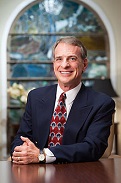
In 1979 Peoria, Ill.-born Christian theologian-philosopher William Lane Craig (1949-) of Biola U., owner of the Web site ReasonableFaith.org pub. the book The Kalam Cosmological Argument for the existence of God, that it is metaphysically impossible for there to be actual infinities or a temporally past-infinite universe, refining Thomas Aquinas' argument of the impossibility of a causally-ordered infinite regress, and Gottfried Wilhelm Leibniz's argument based on the Principle of Sufficient Reason, going on to defend the historicity of the resurrection of Jesus Christ, becoming one of the top-50 most influential living philosophers on Earth.
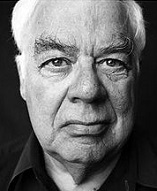
In 1979 New York City-born philosopher Richard McKay Rorty (1931-2007) pub. Philosophy and the Mirror of Nature, which claims that Western philosophy will hit a dead end, becoming like scholasticism without reaching a broad consensus or developing anything new.
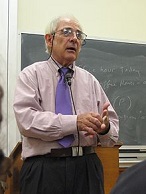
In 1980 Denver, Colo.-born Oxford-educated philosopher John Rogers Searle (1932-) pub. the Chinese Room Argument, which attempts to prove the Turing Test inadequate, leading to the conclusion that human minds are not computer-like information processing systems.